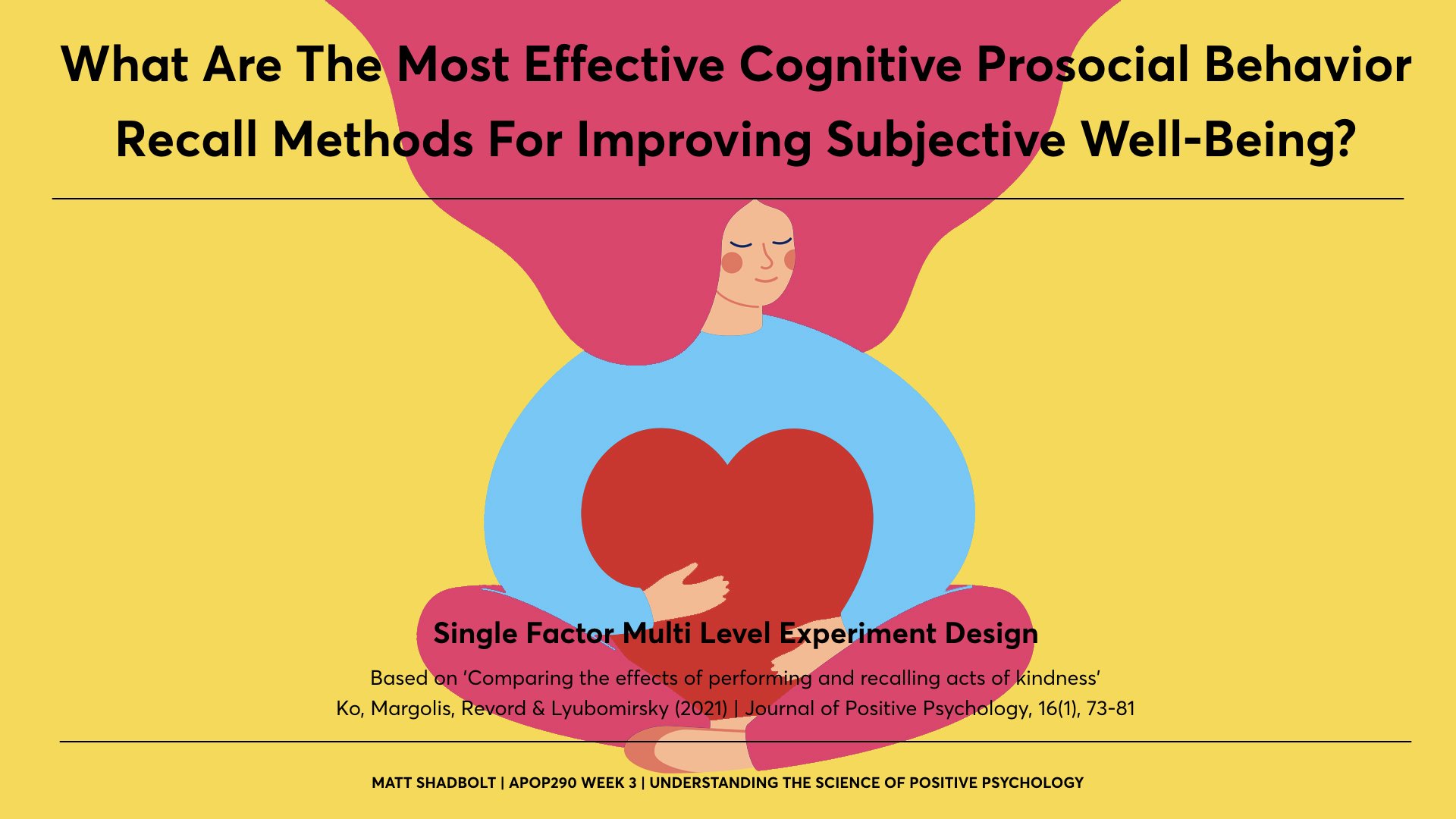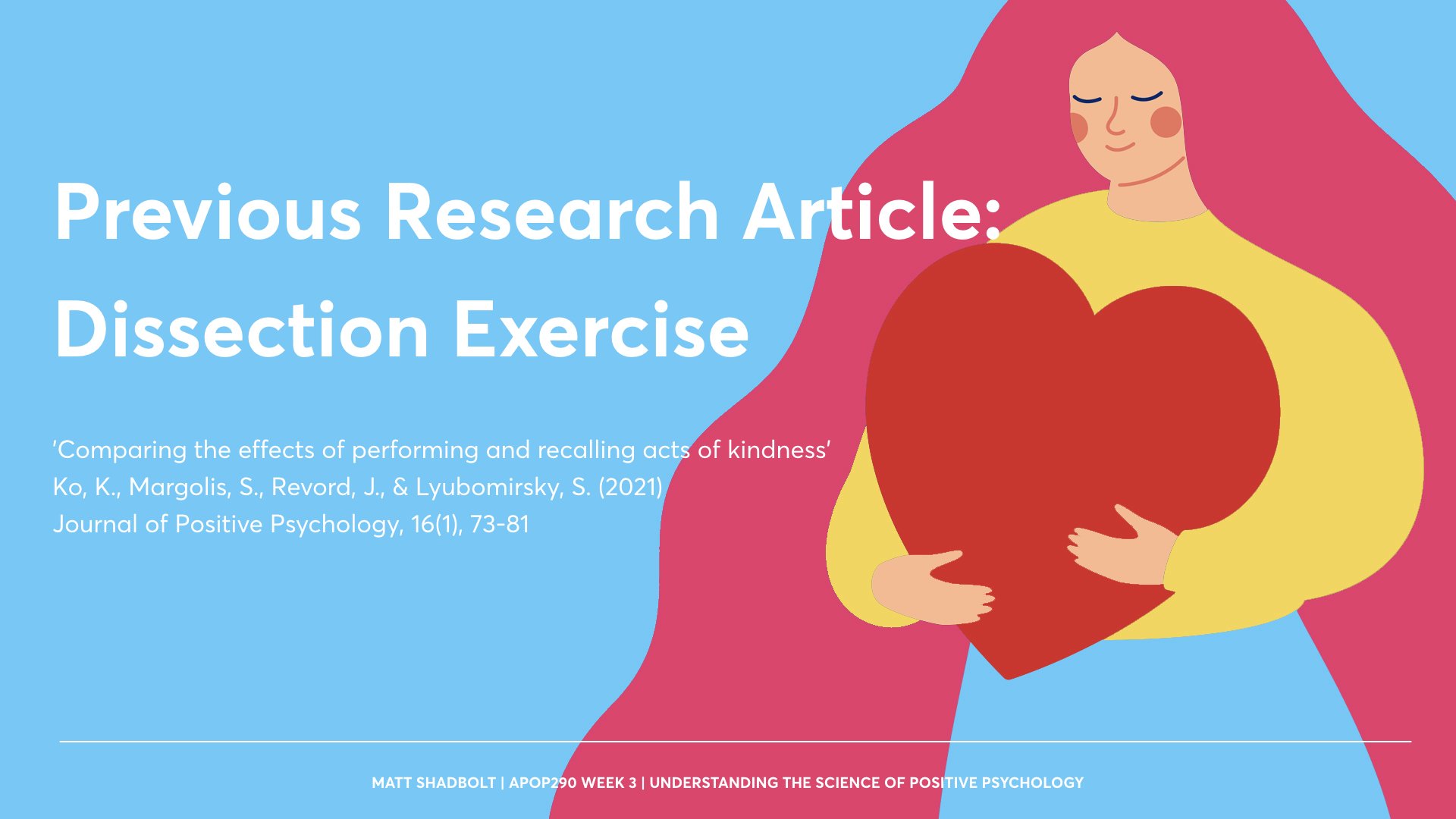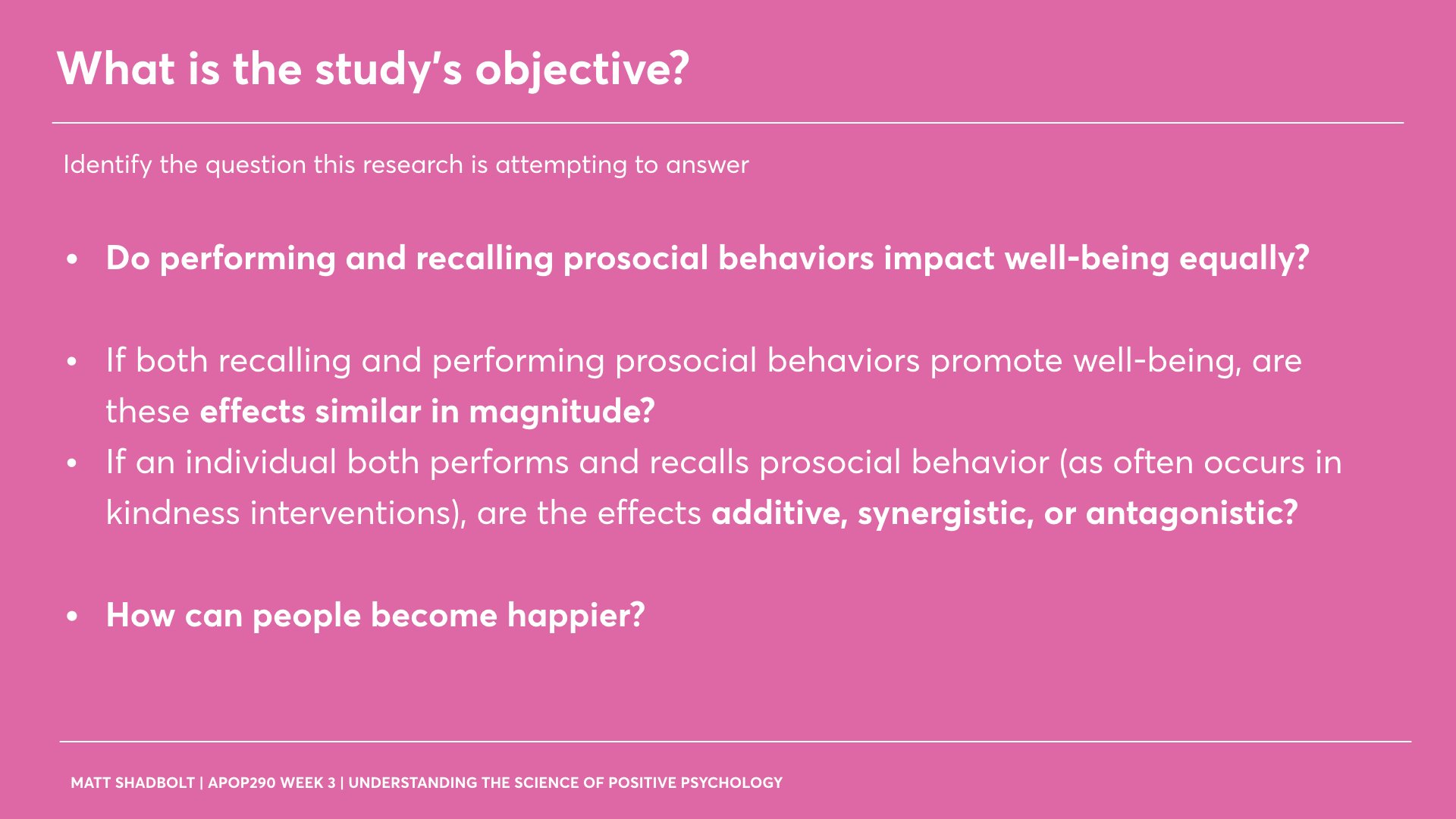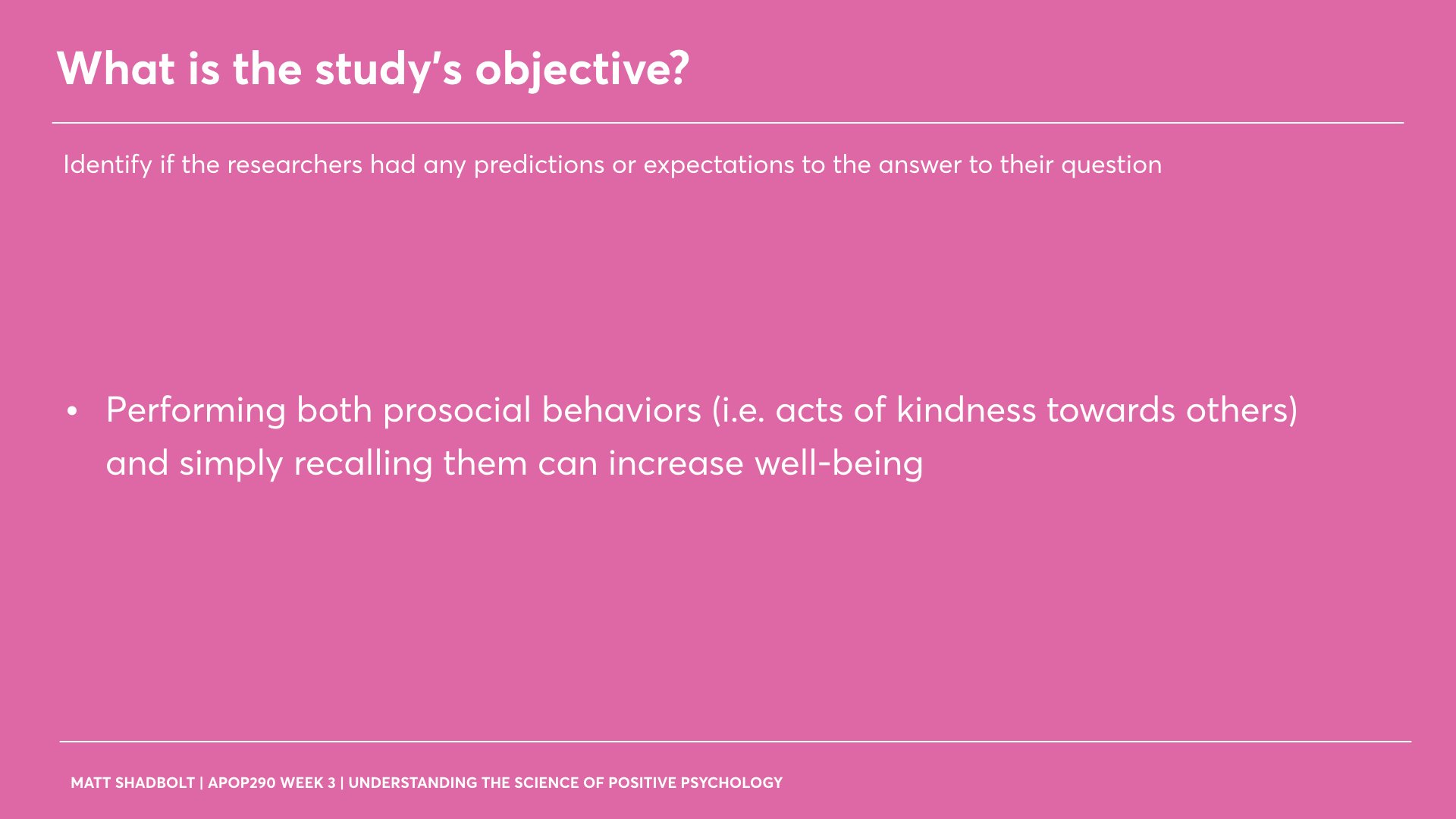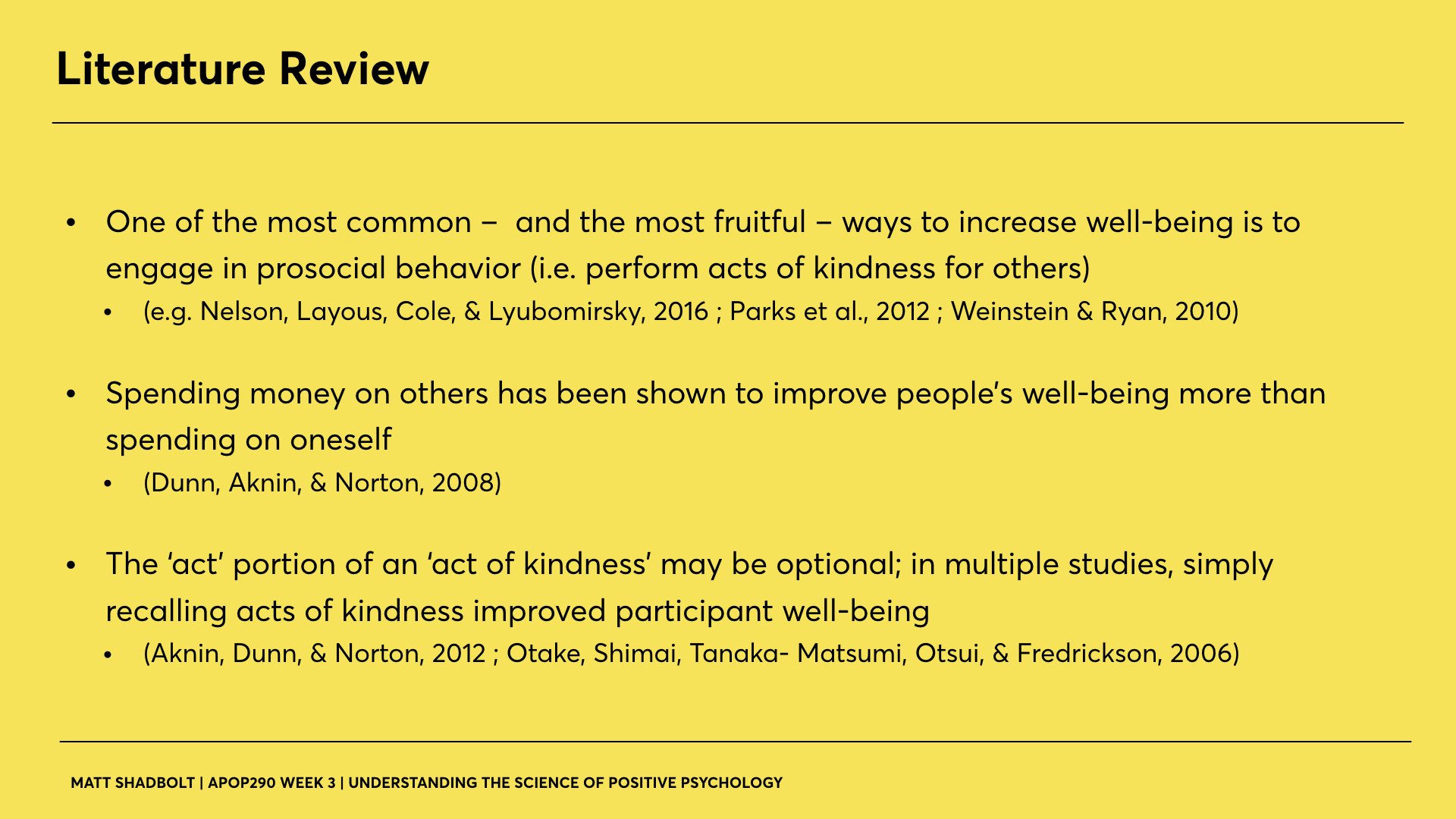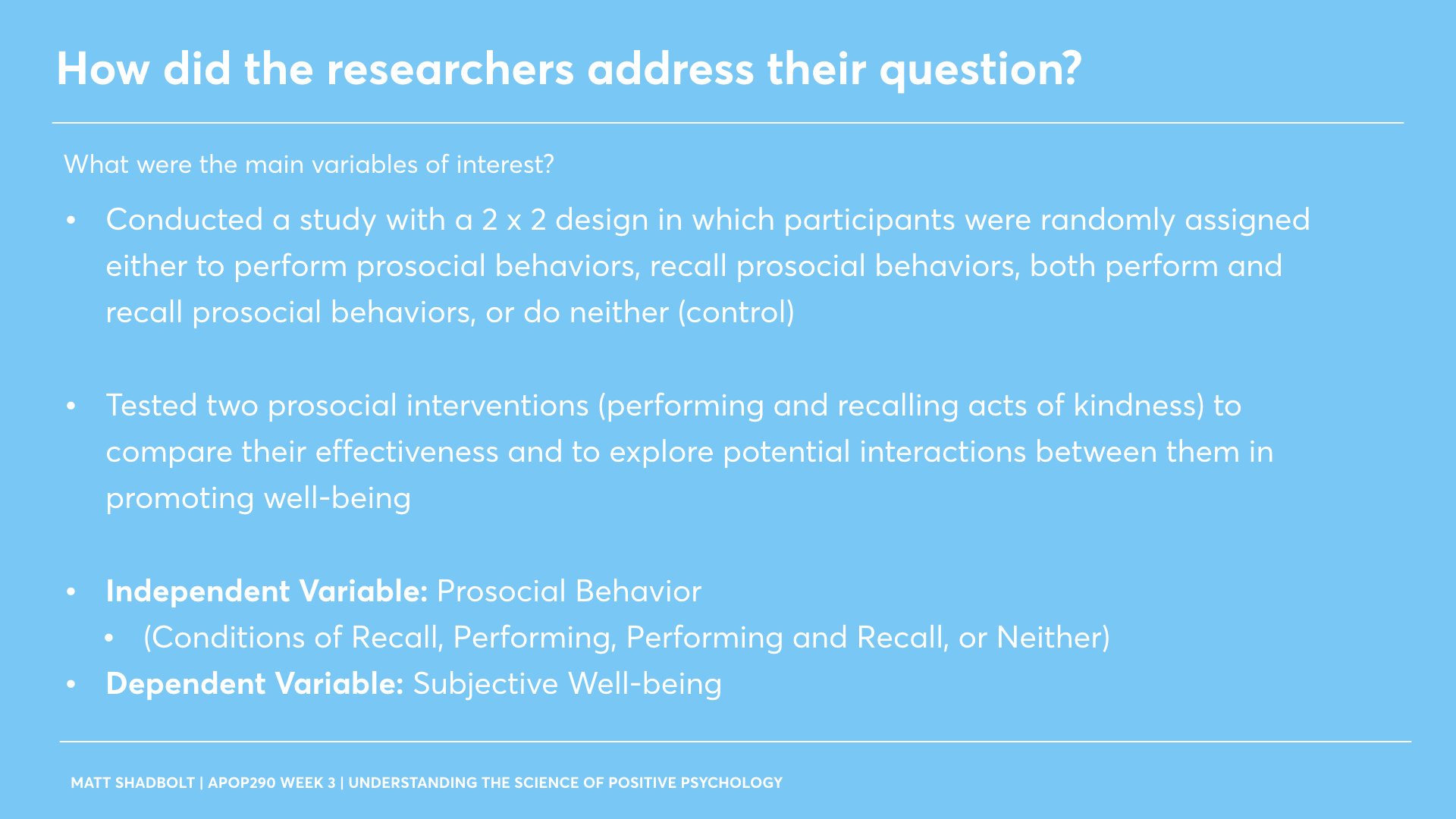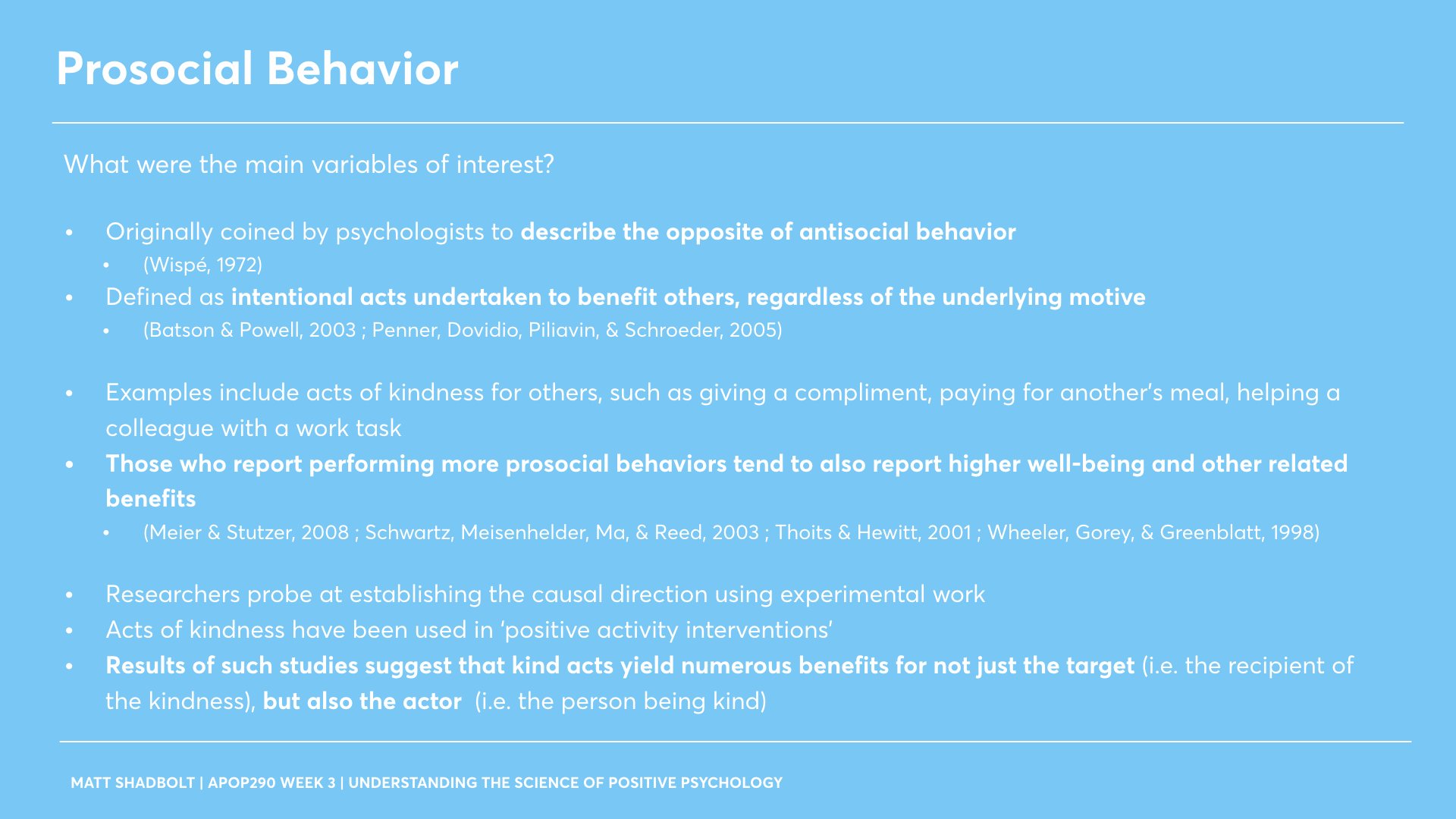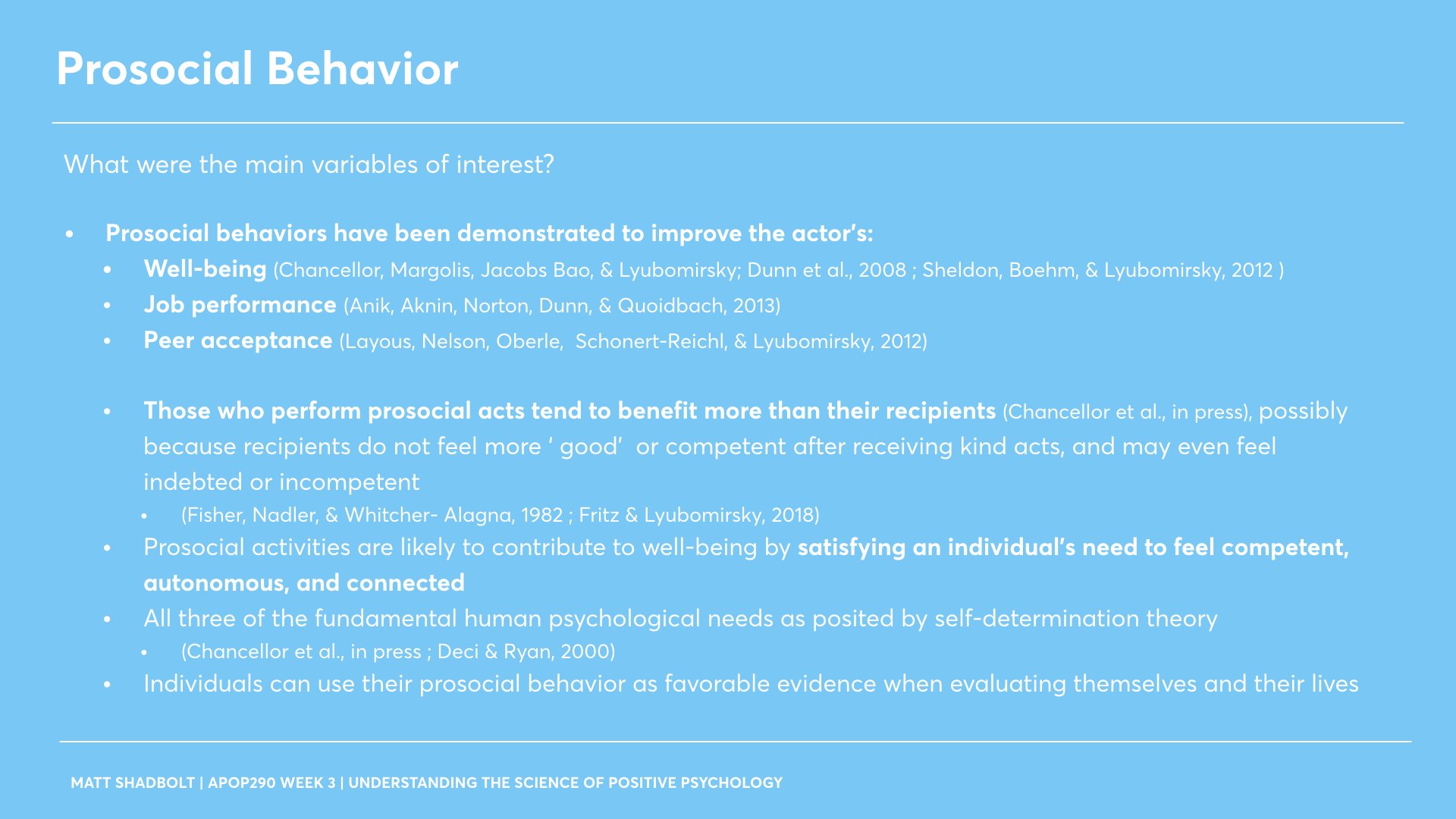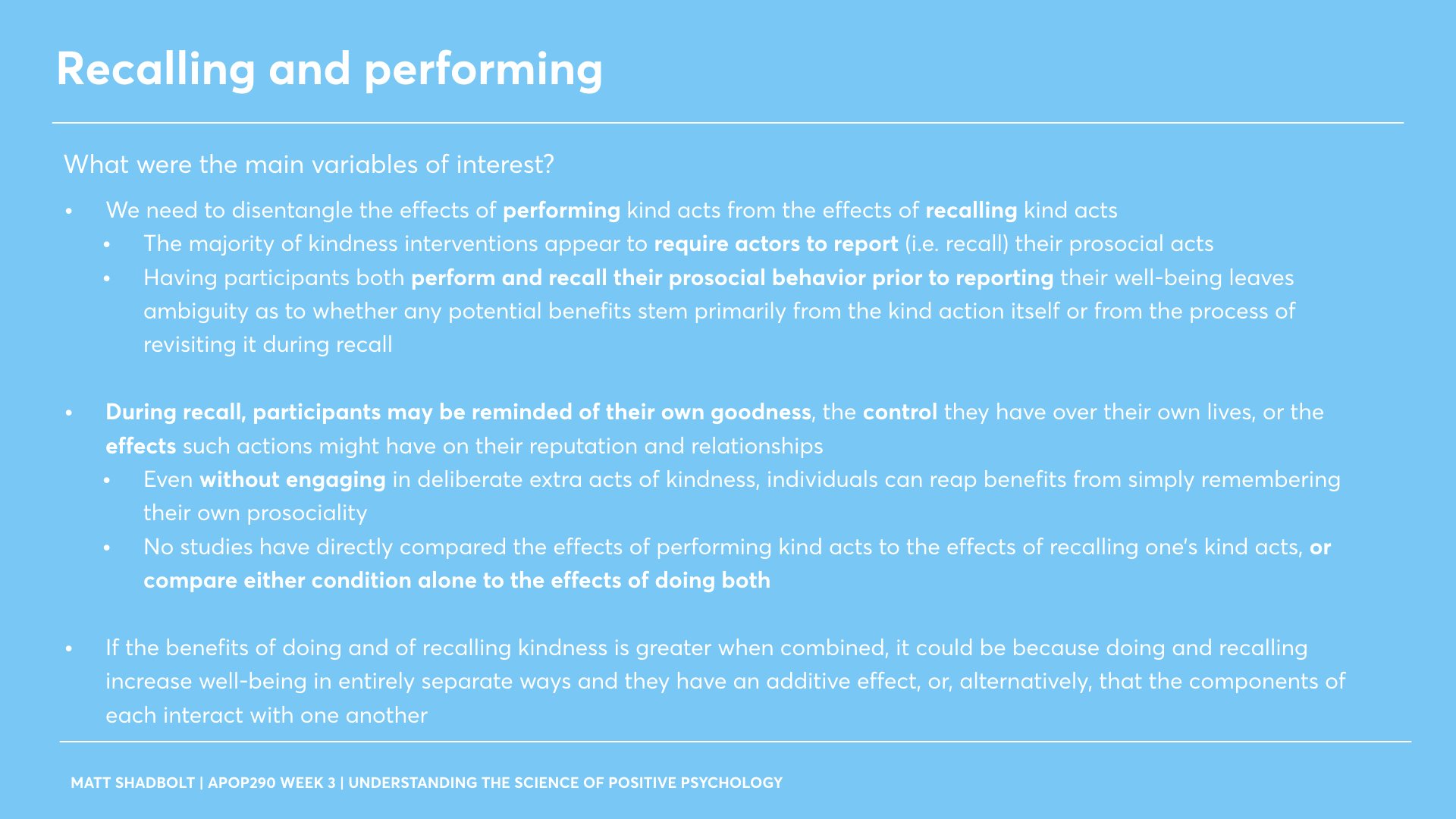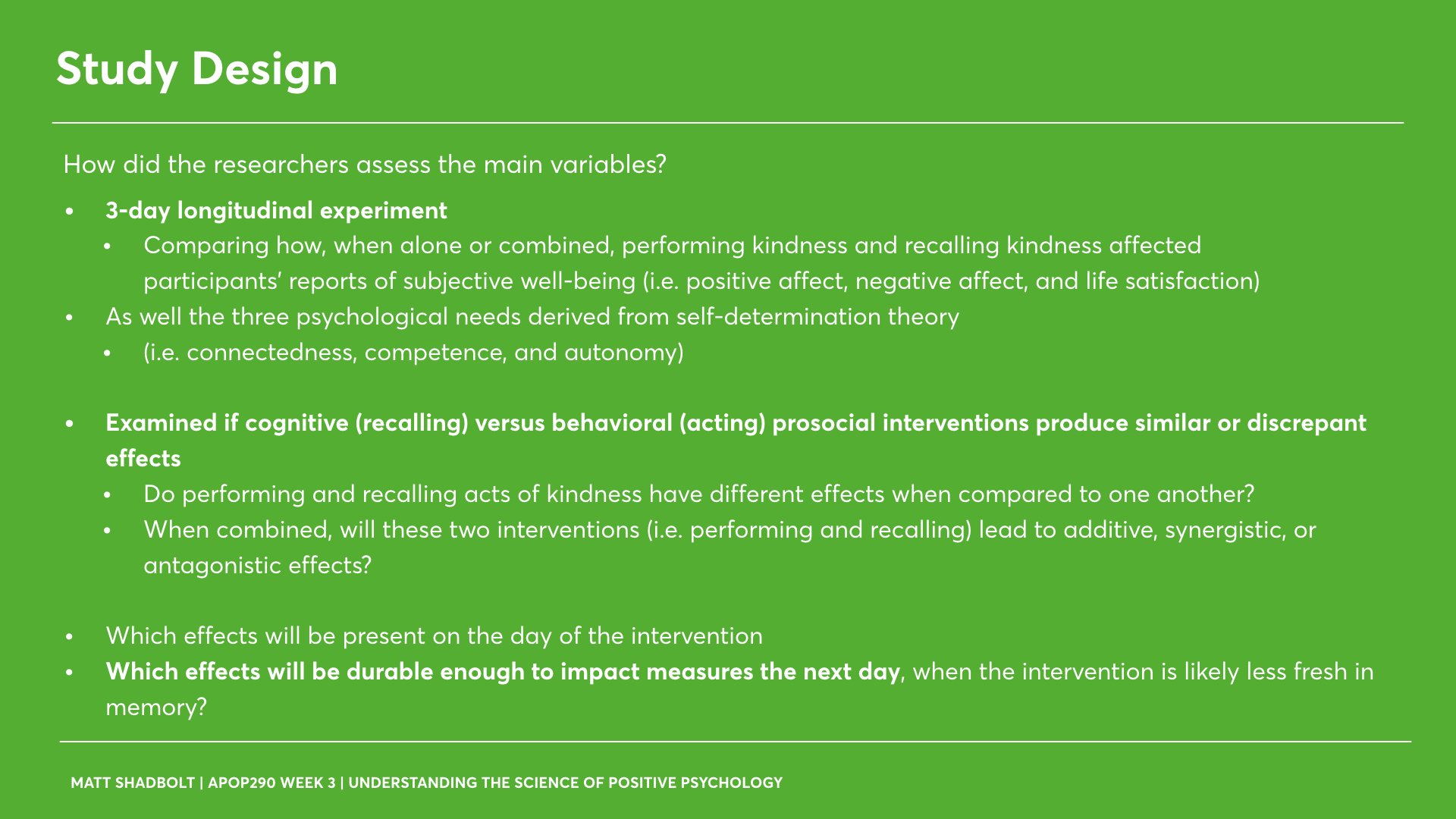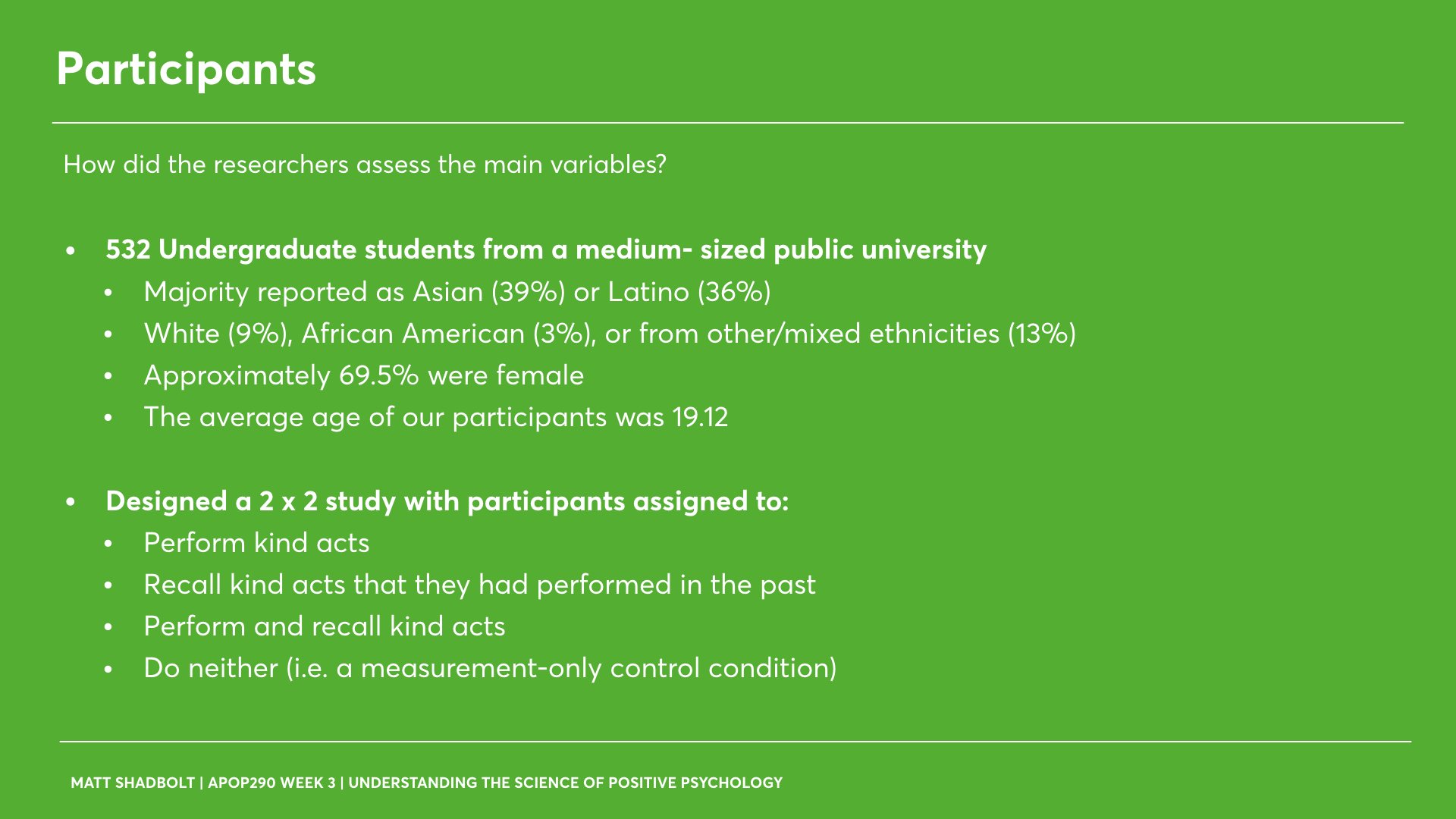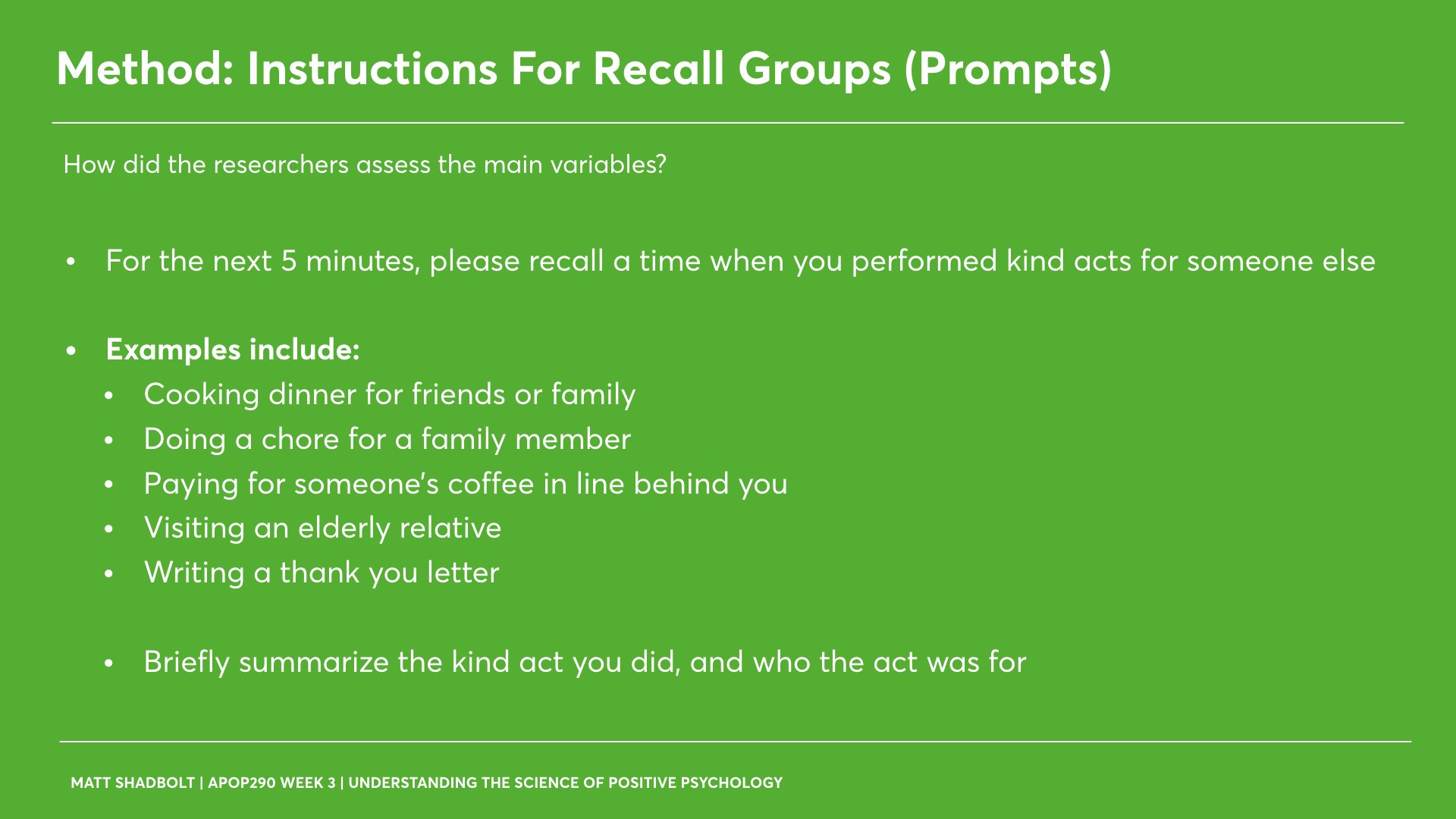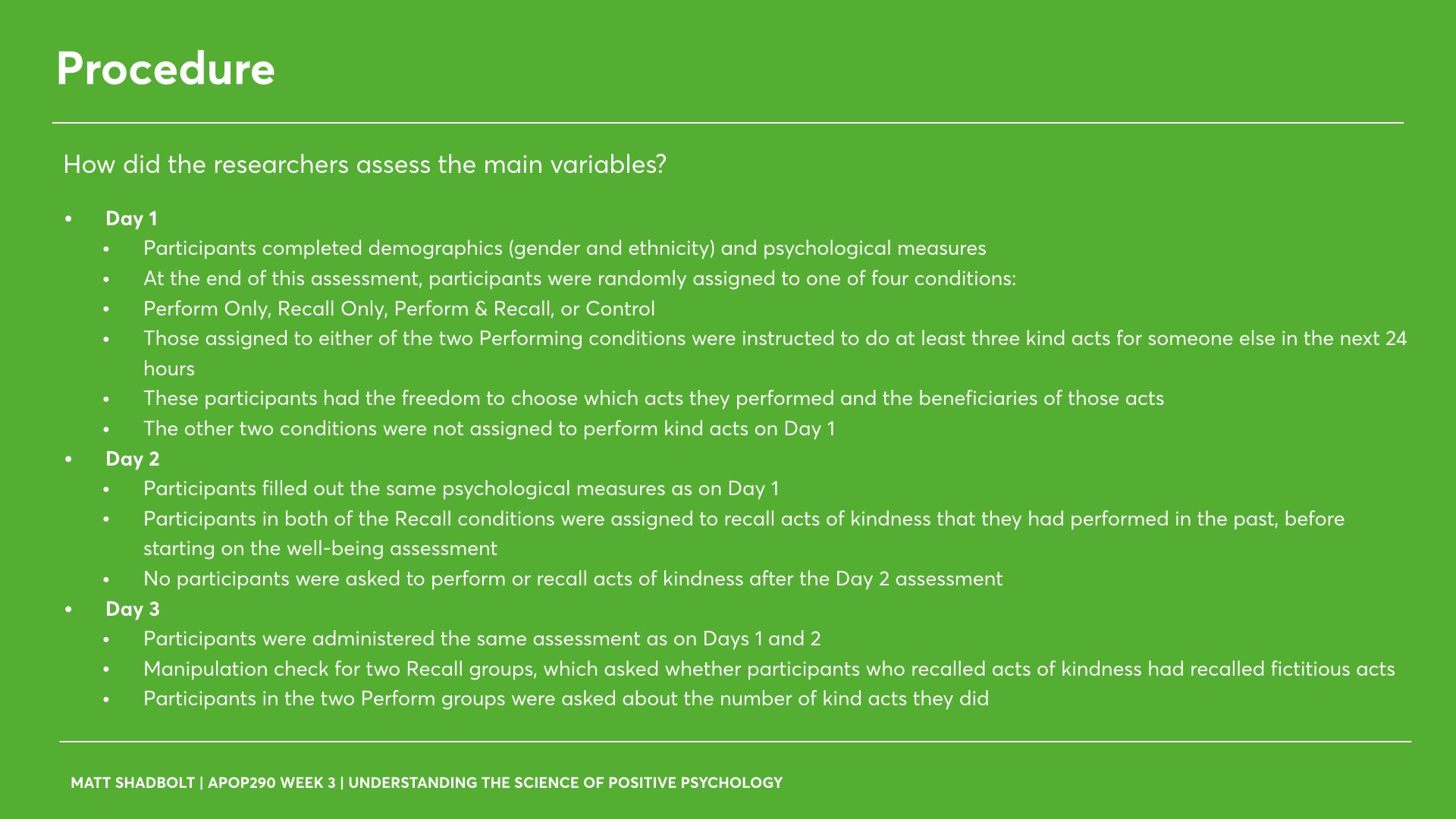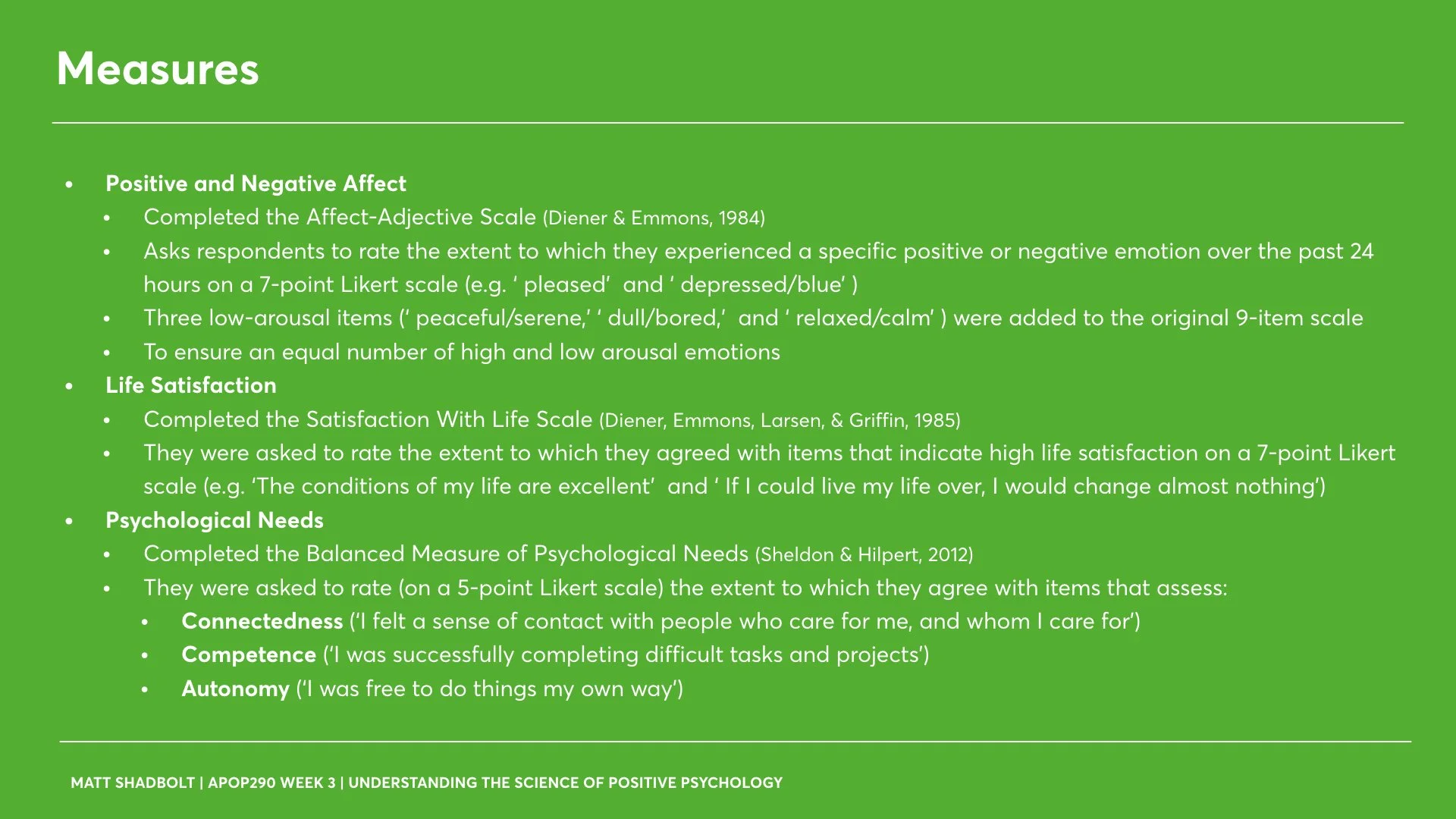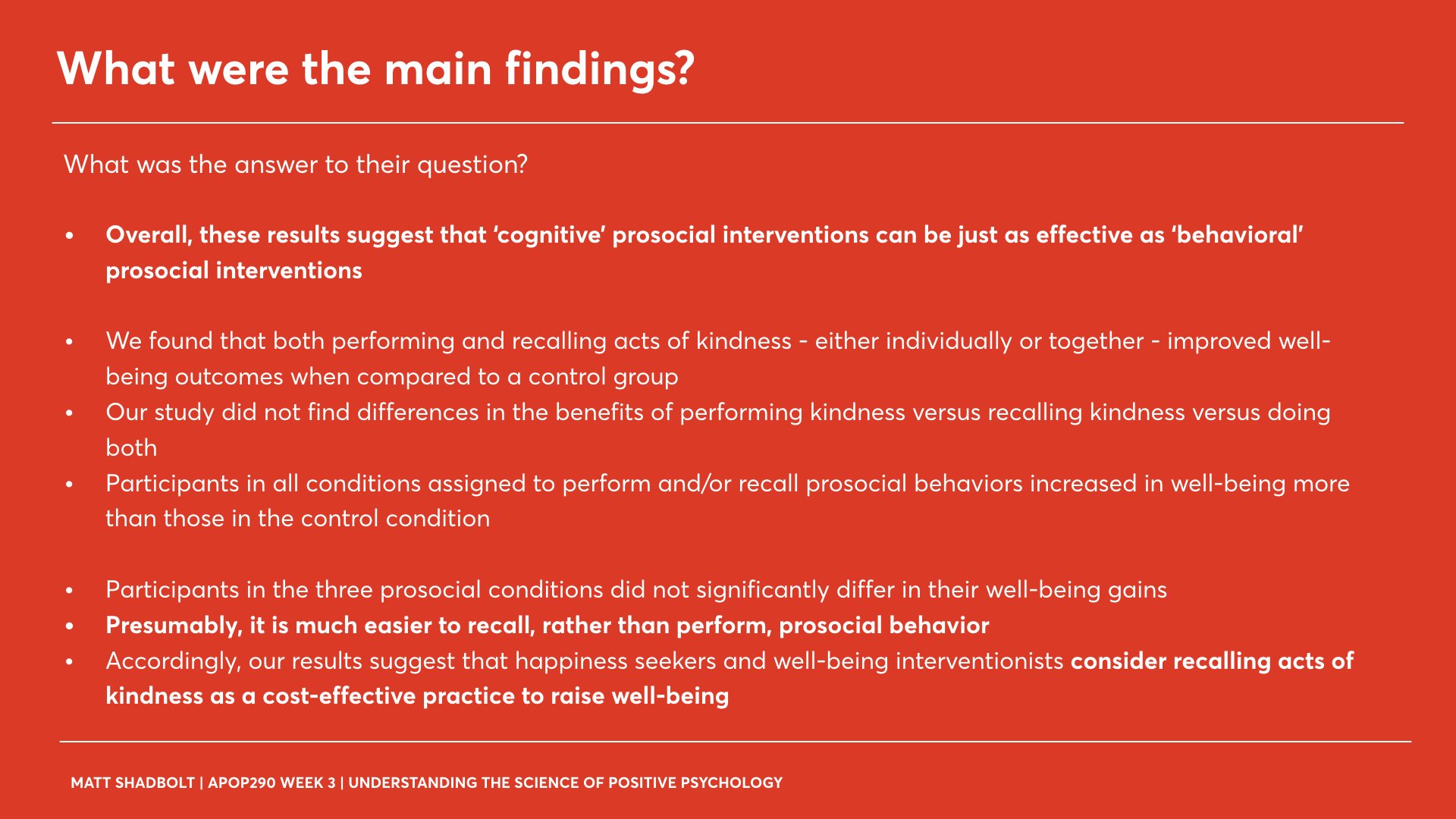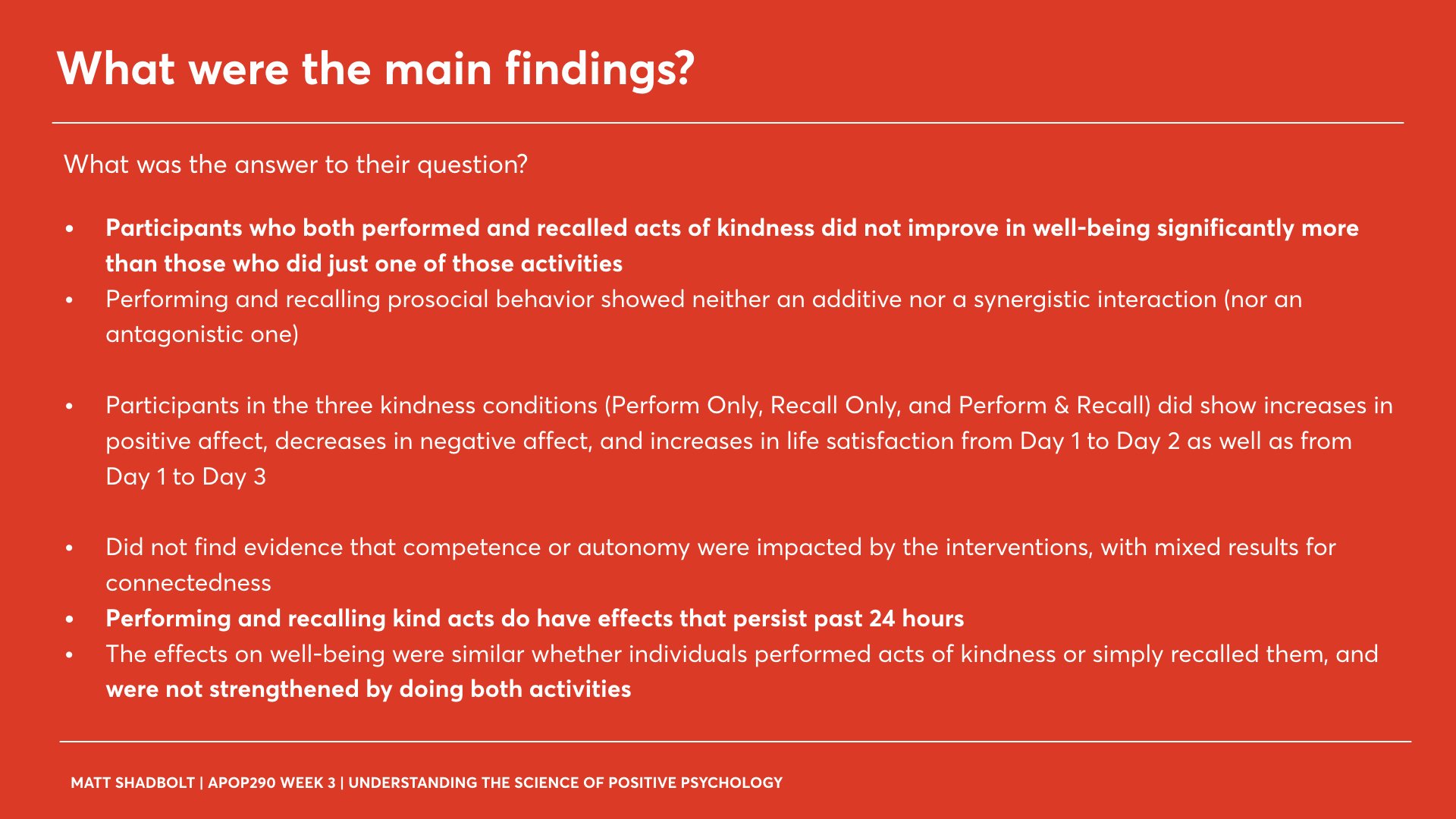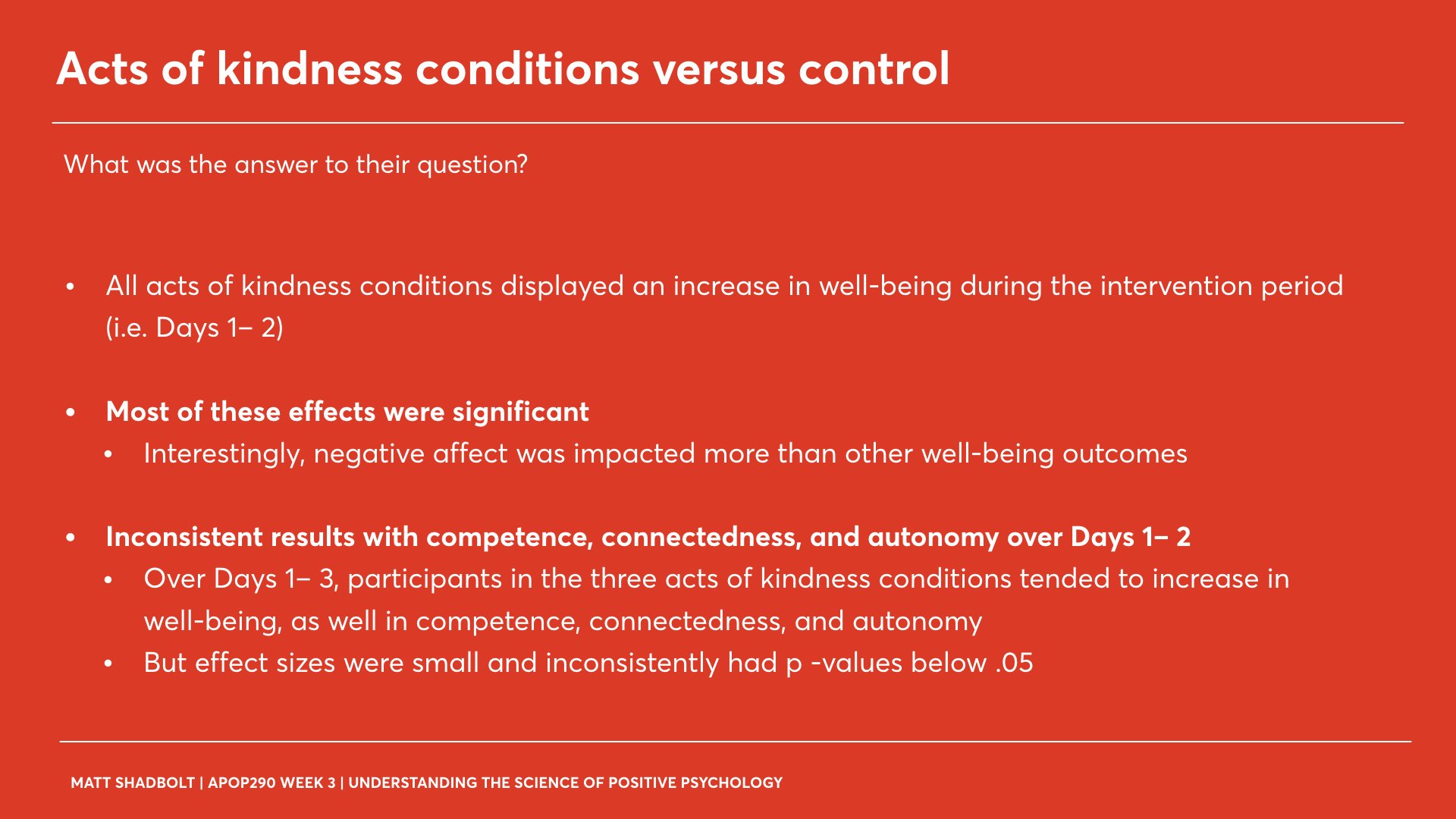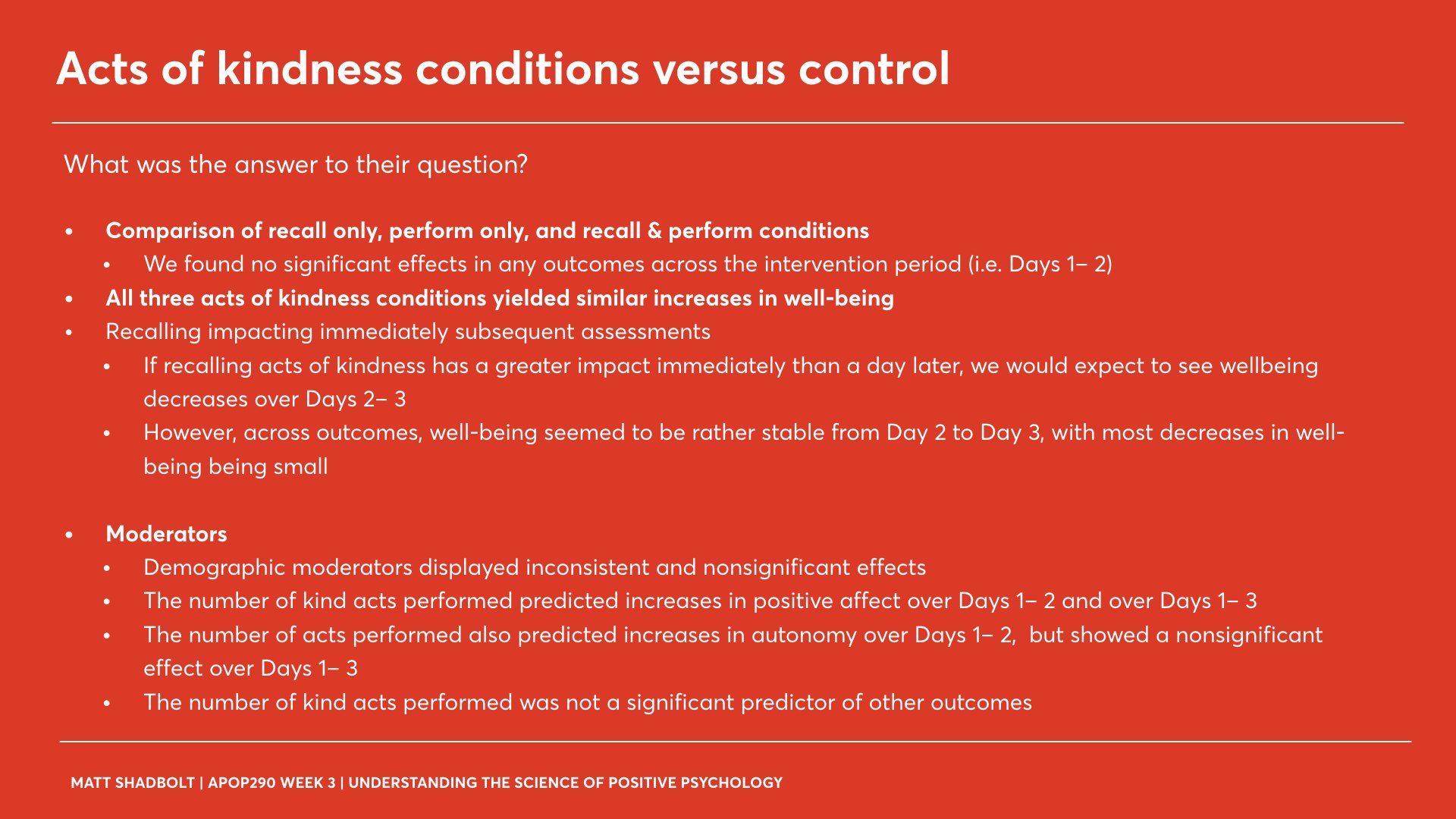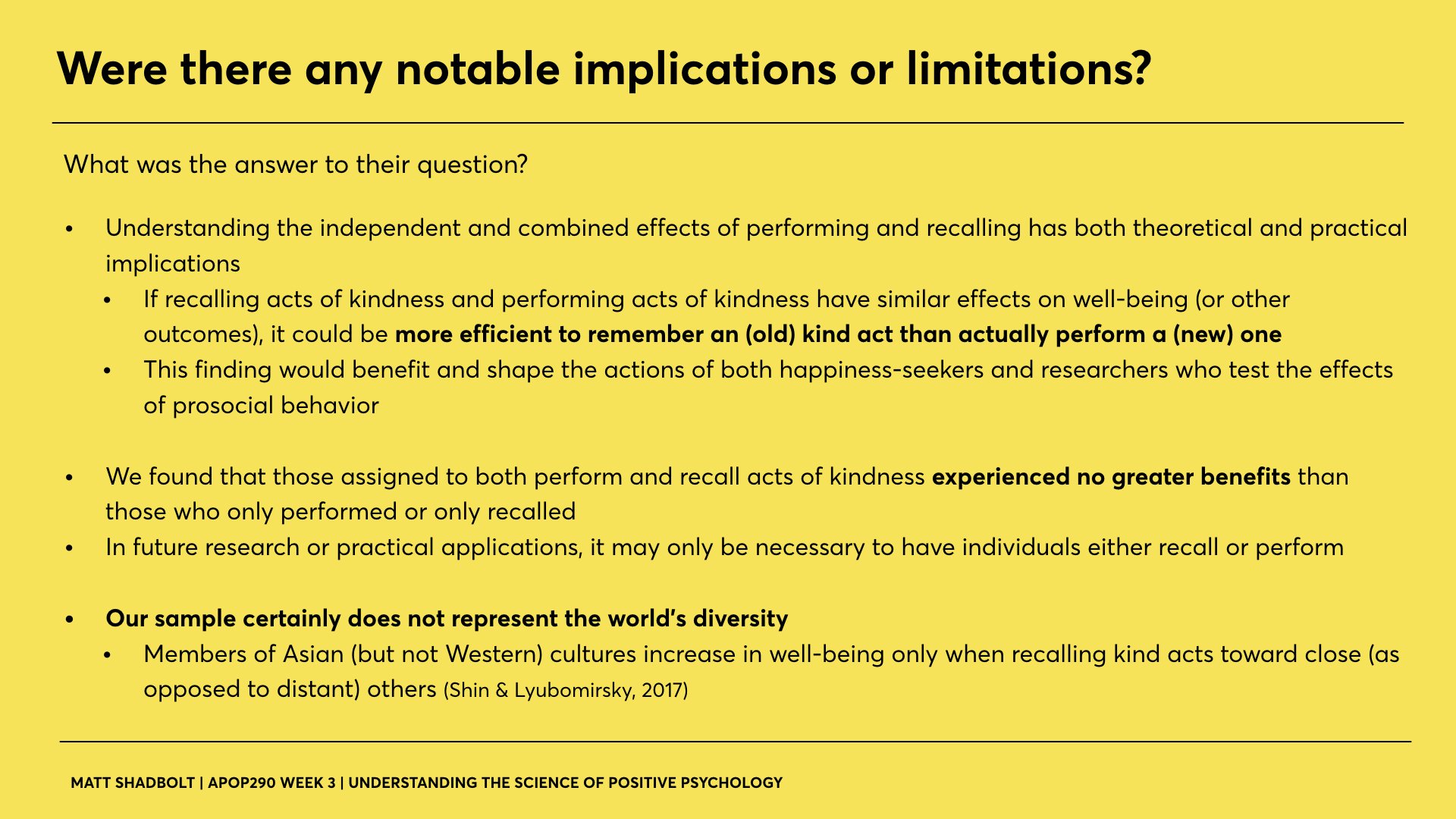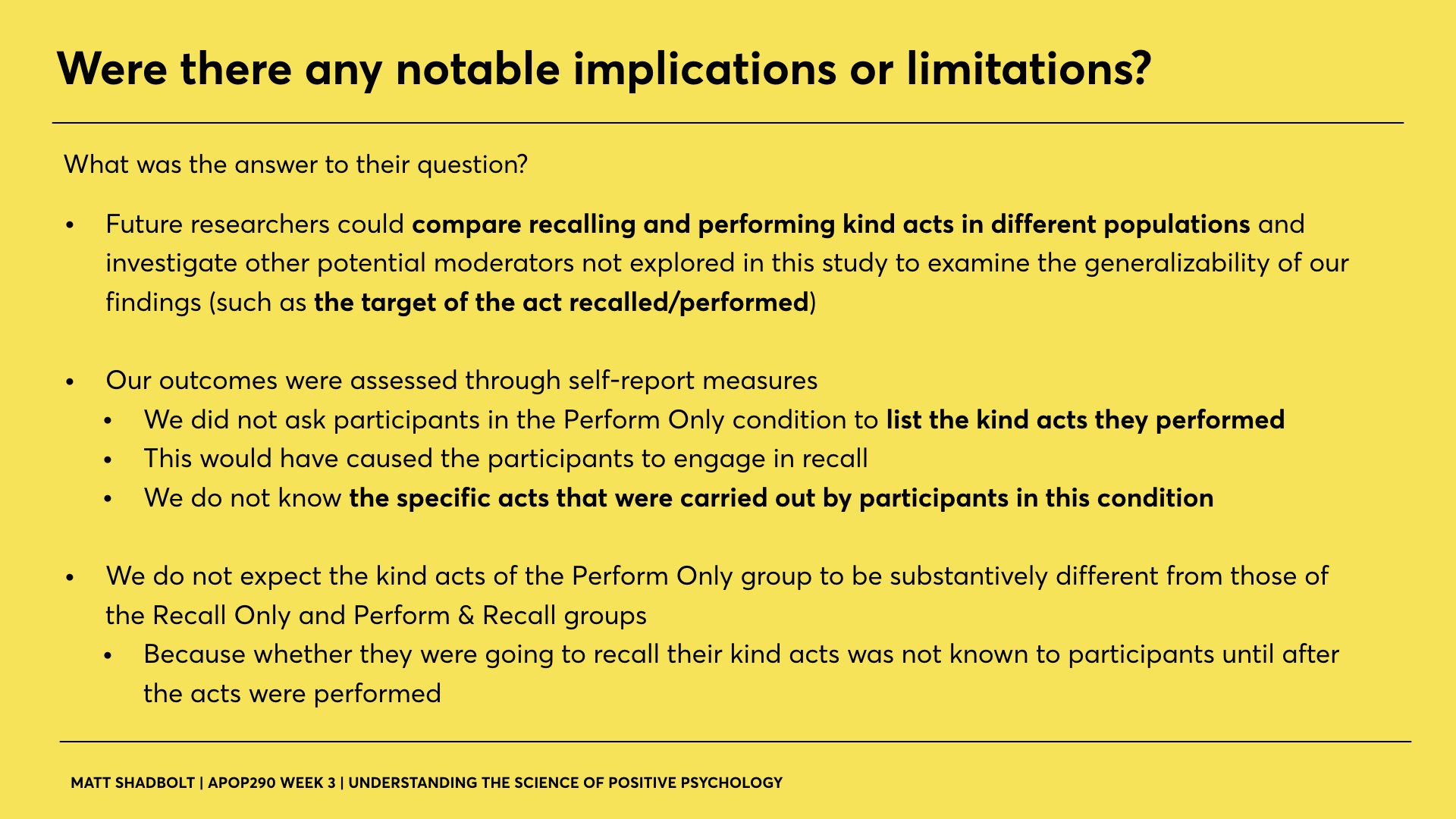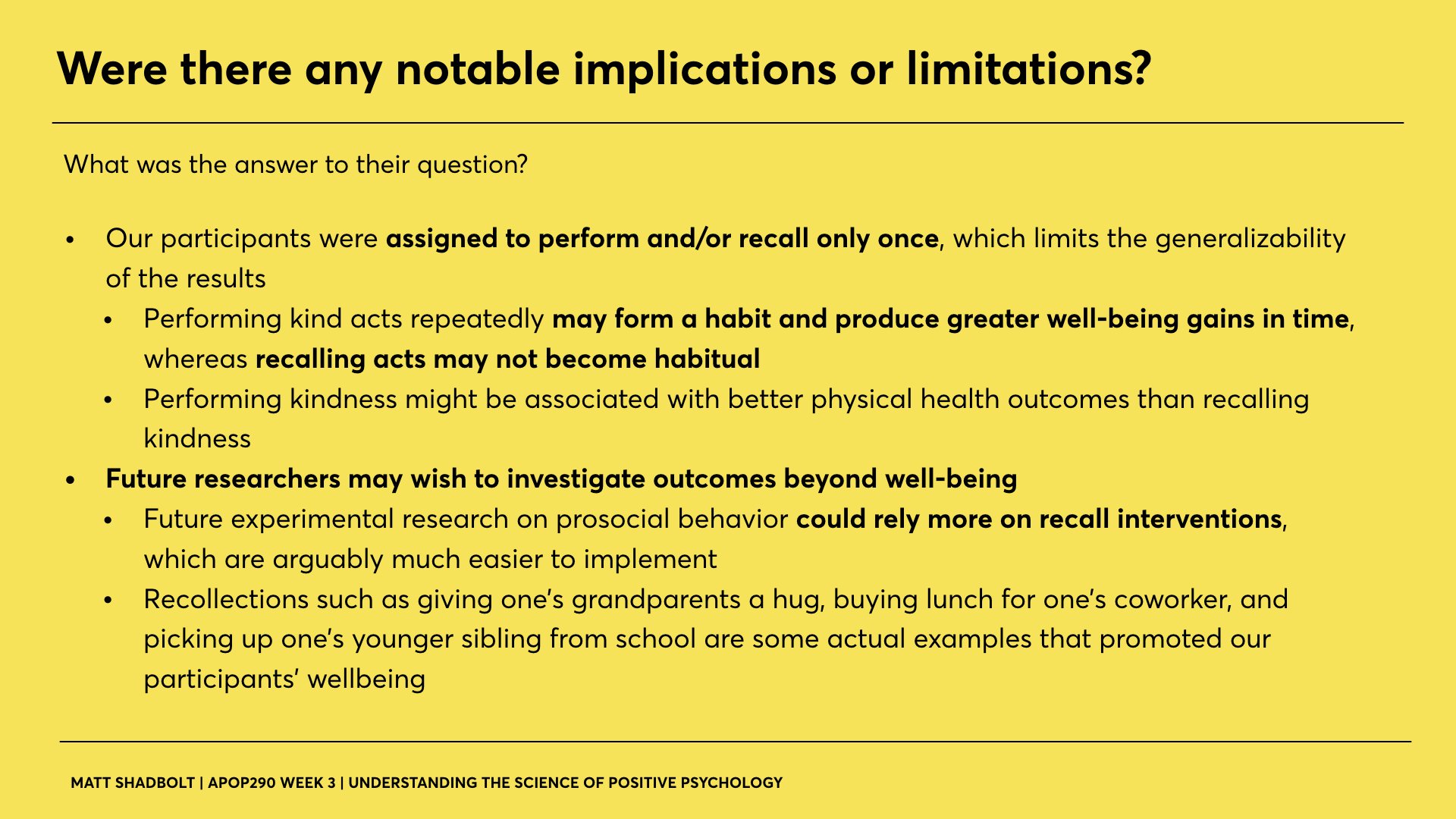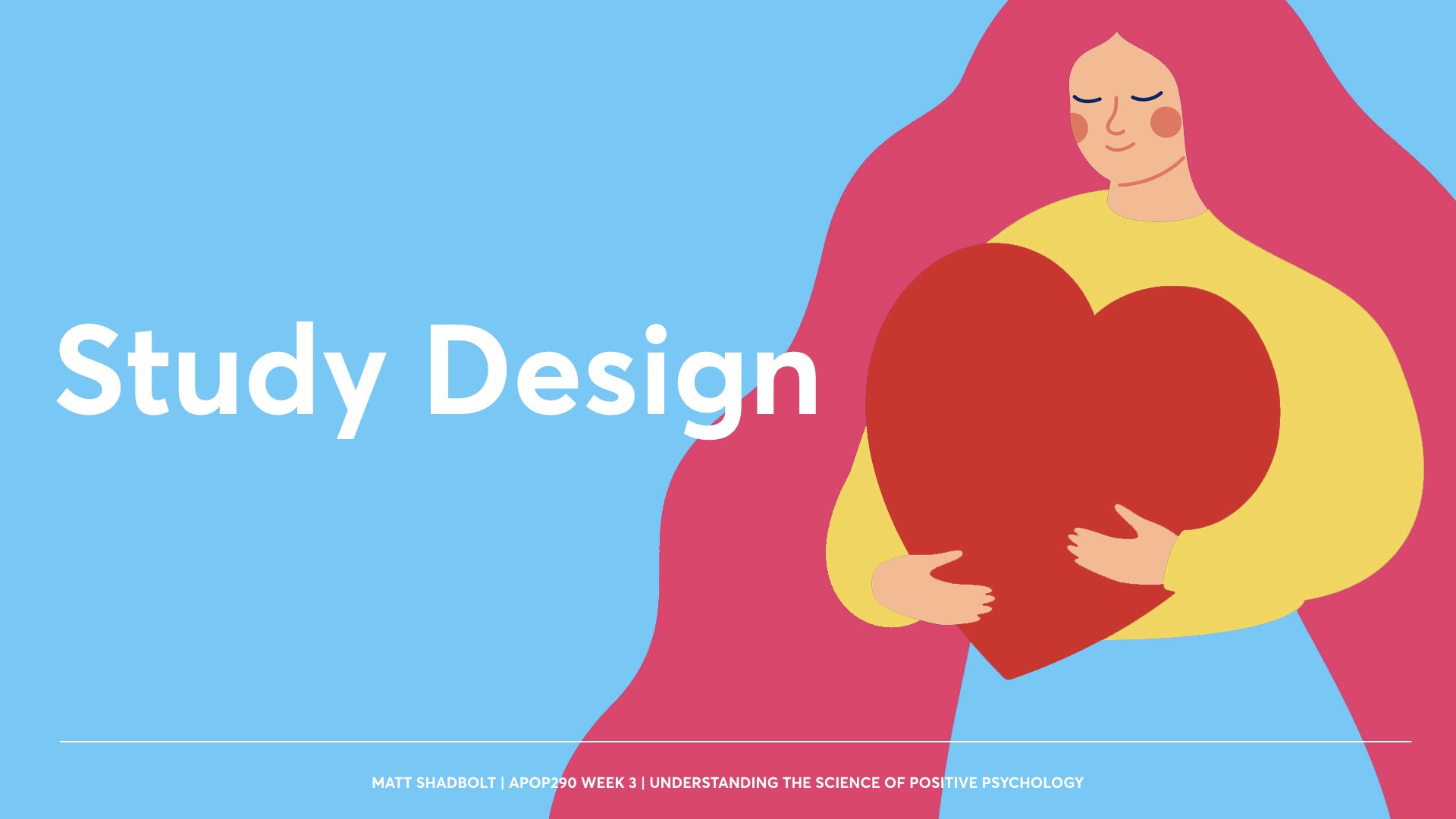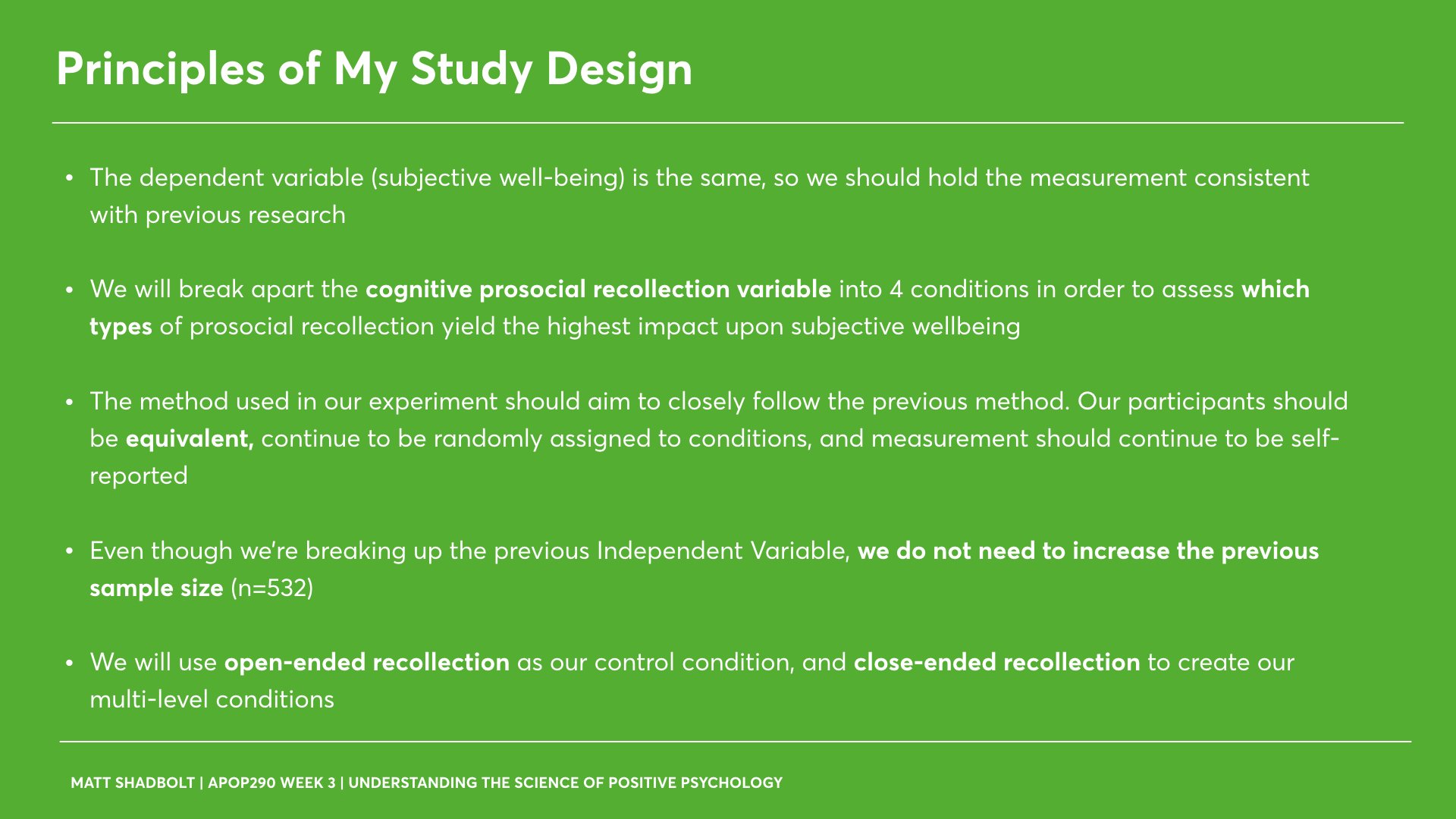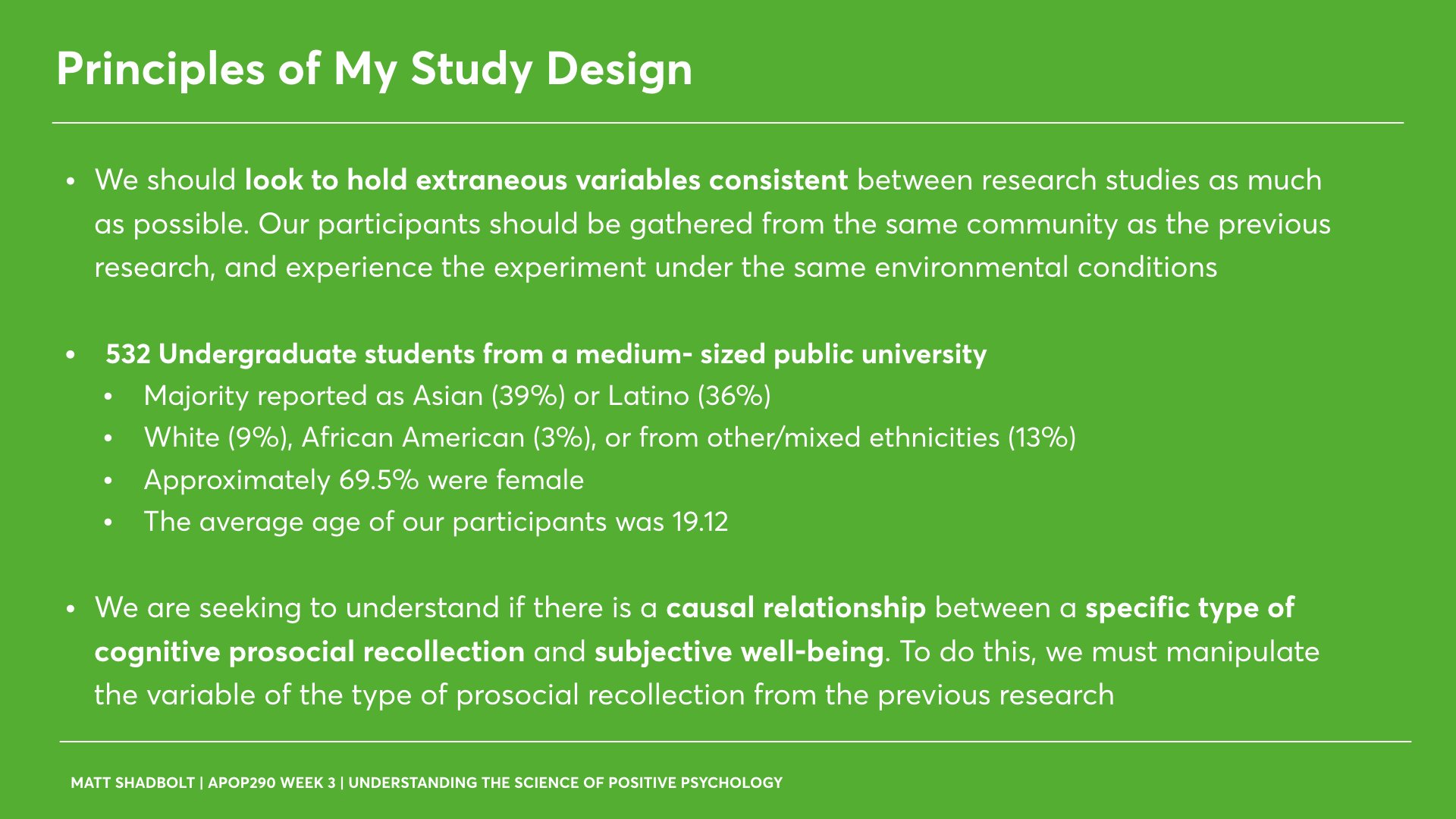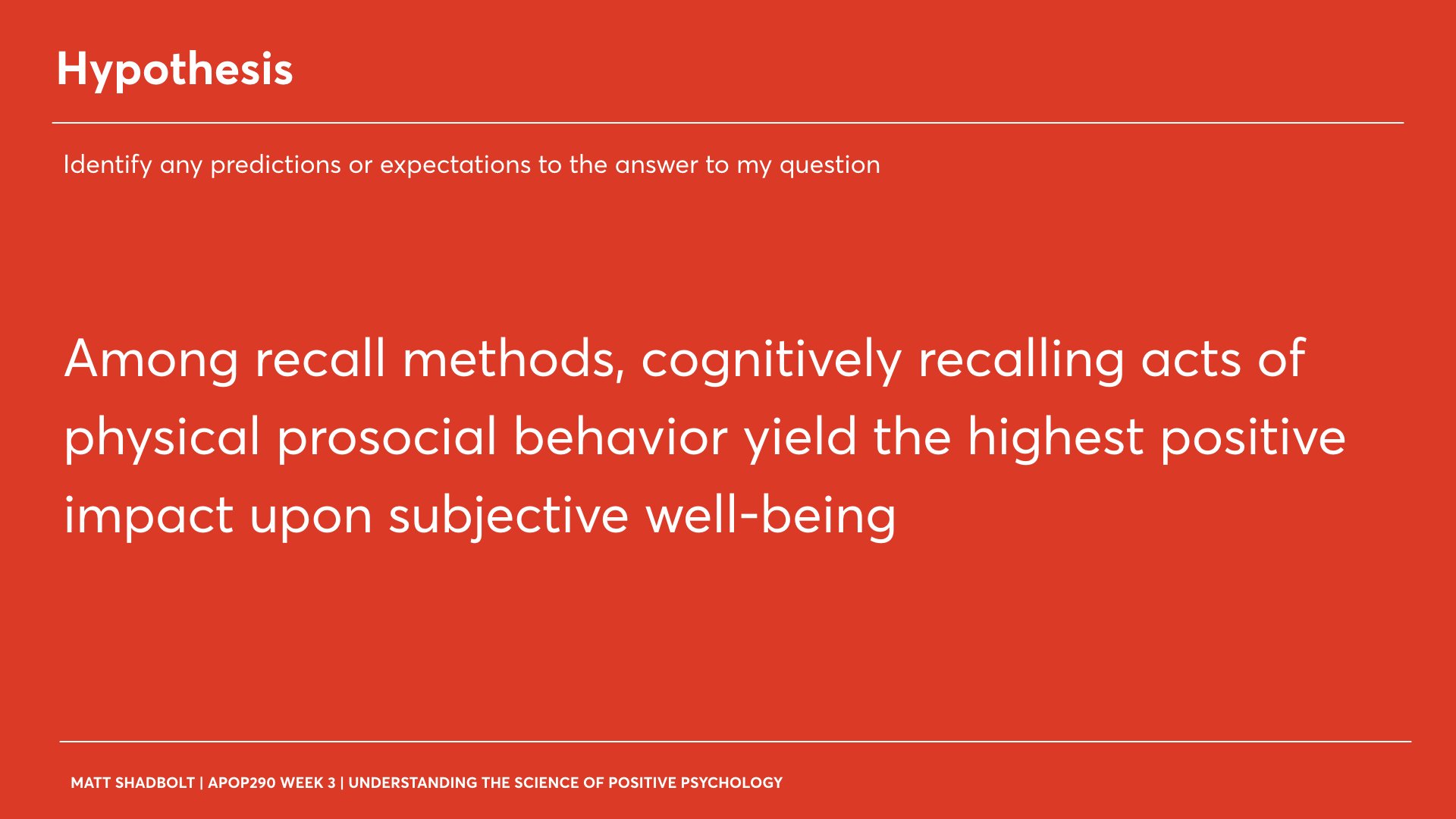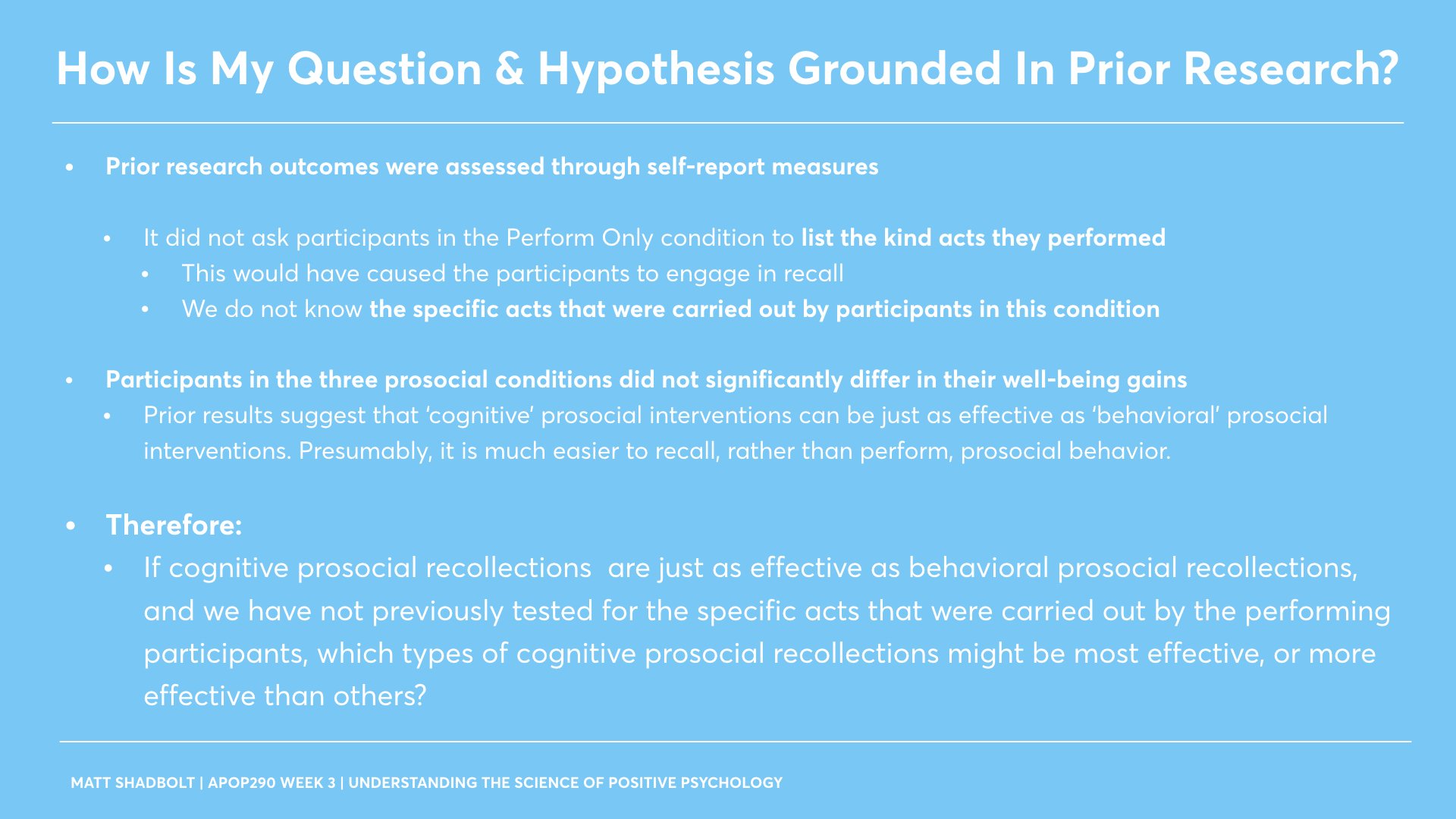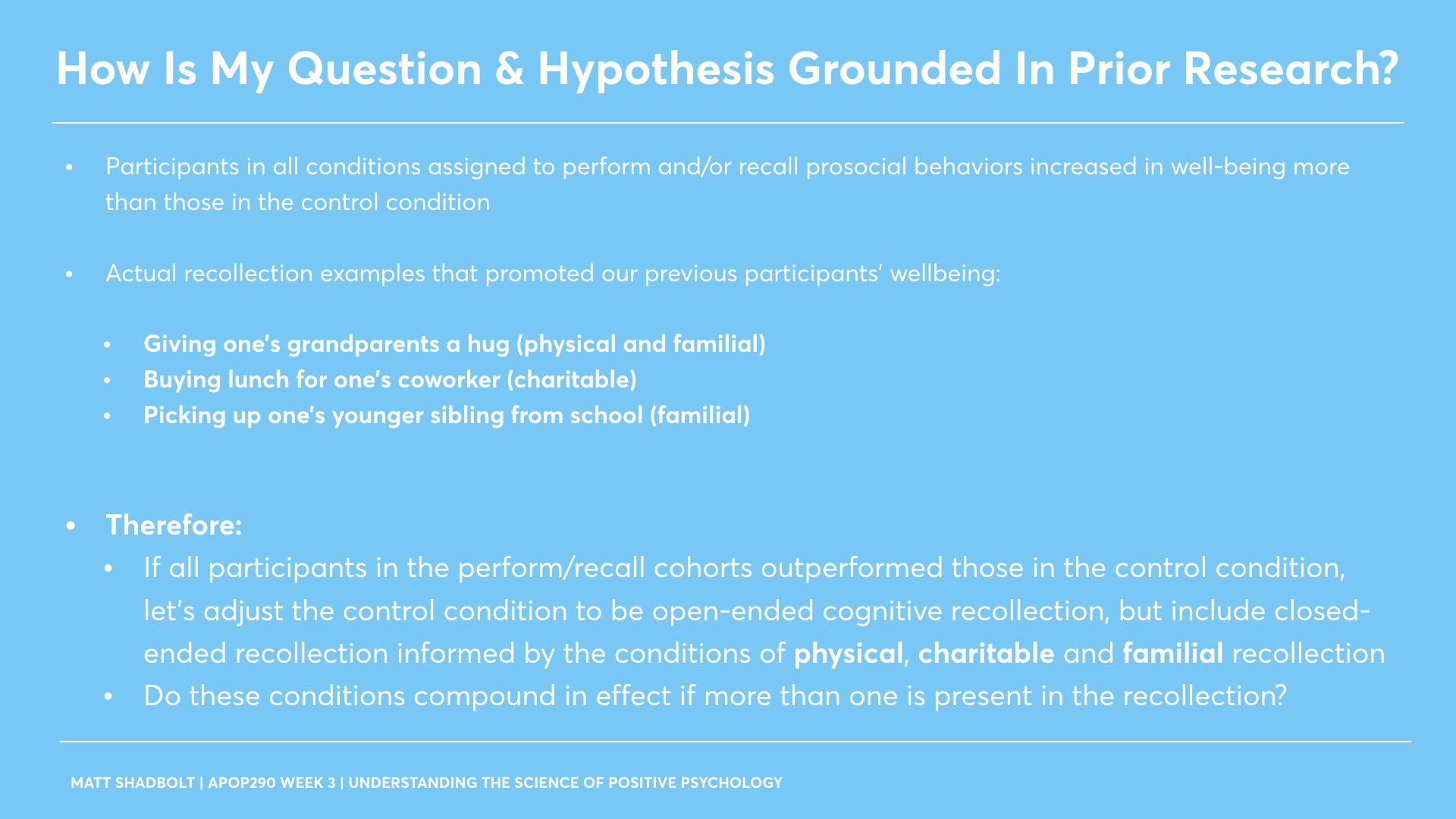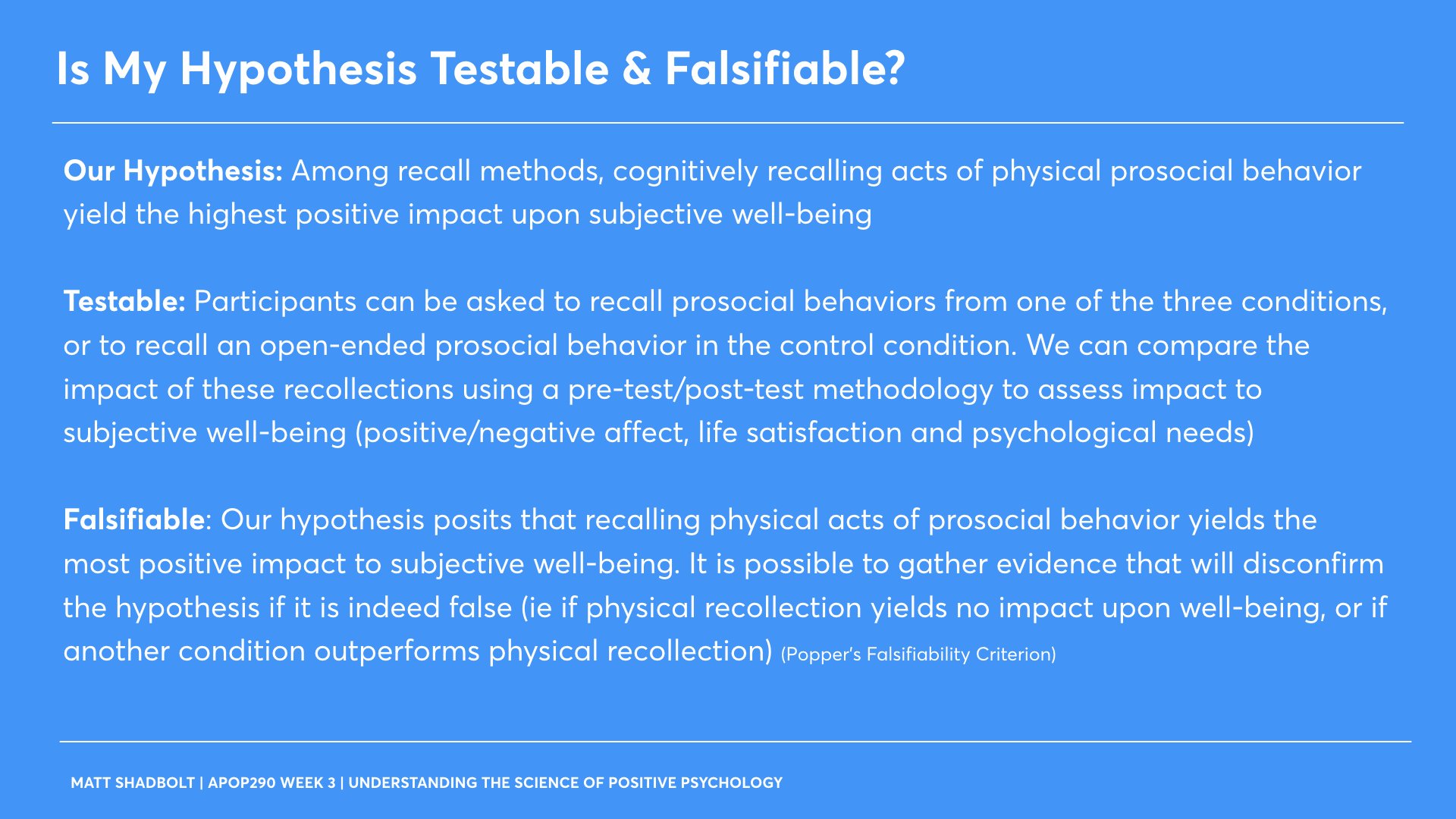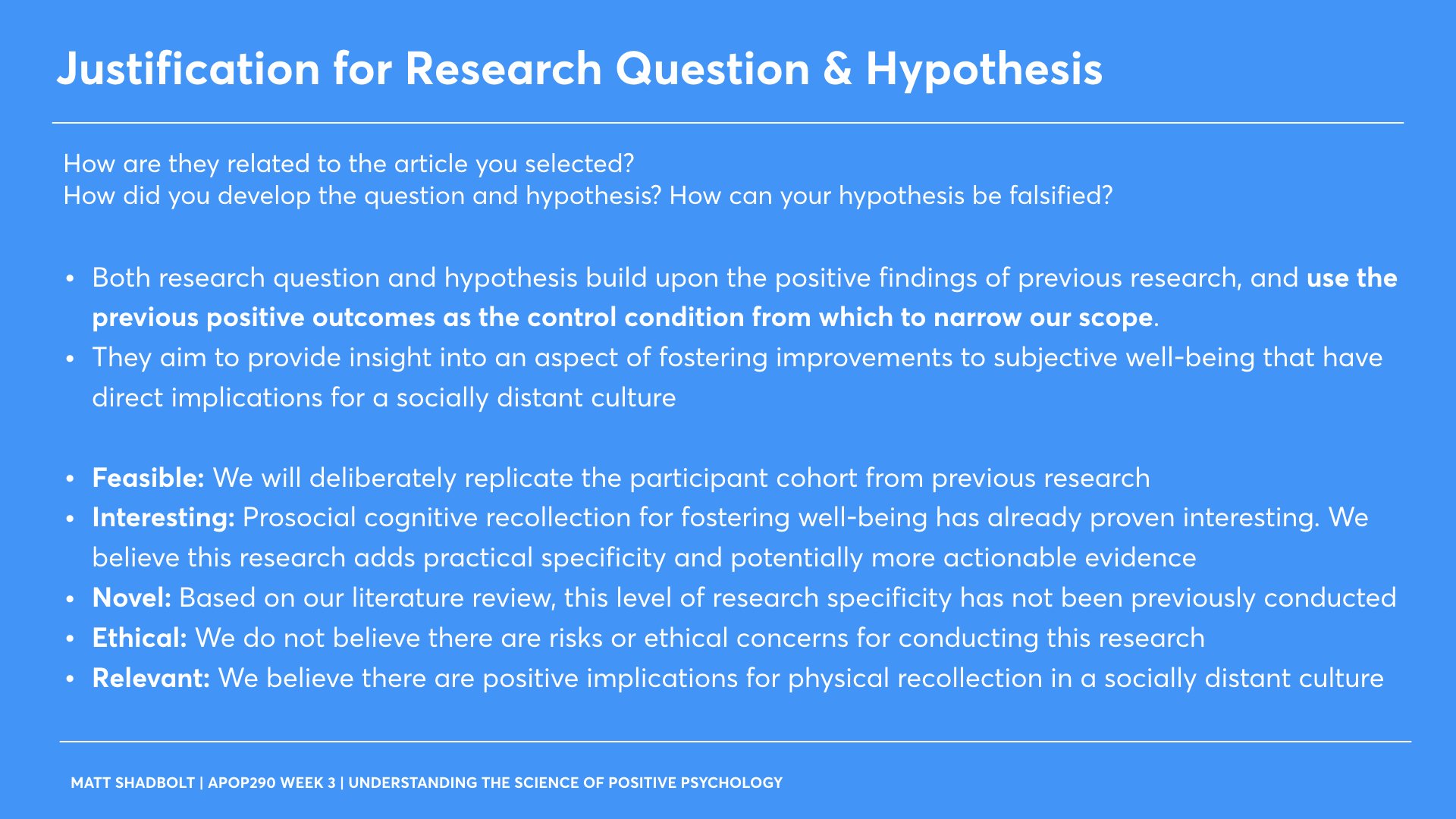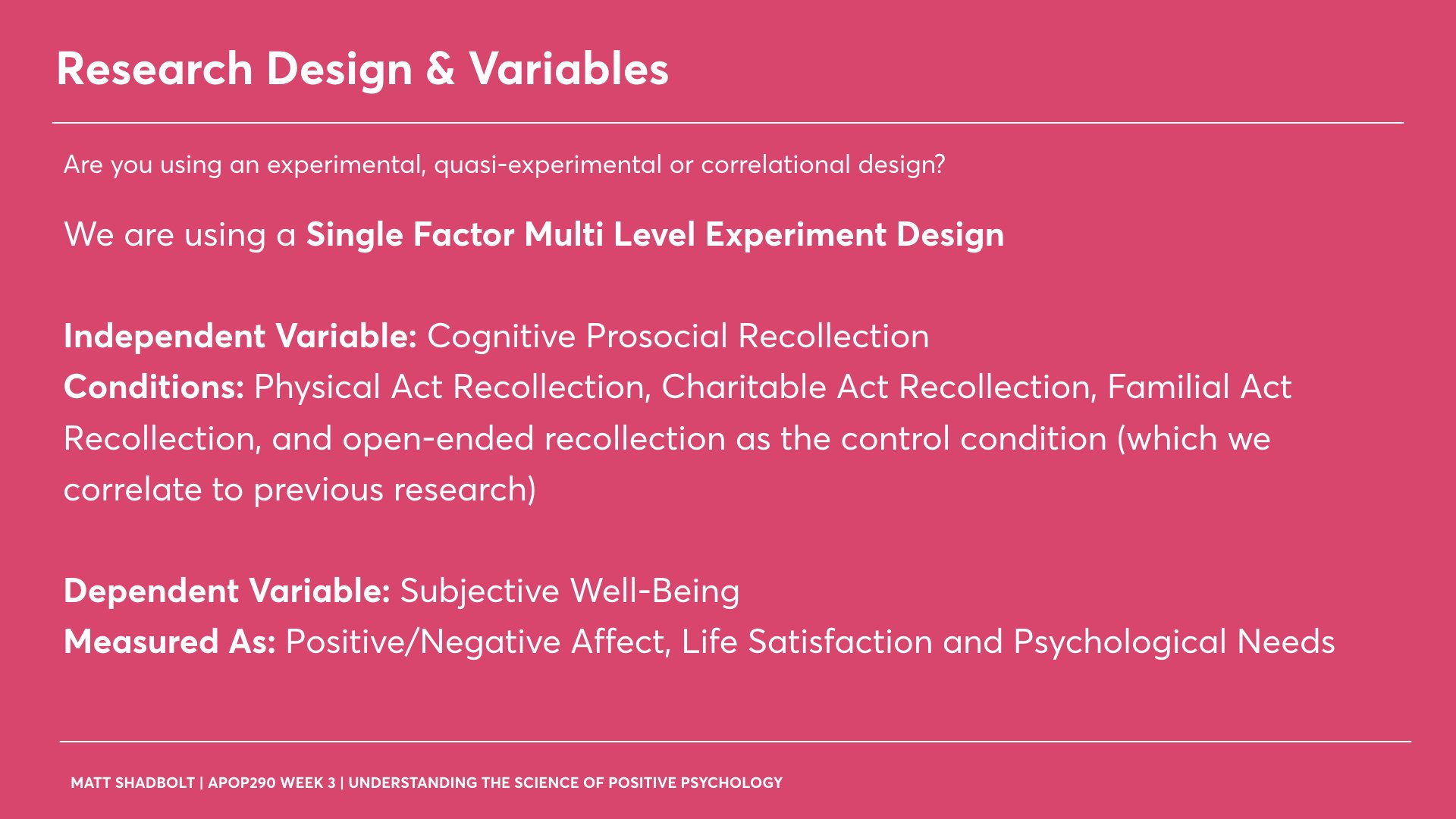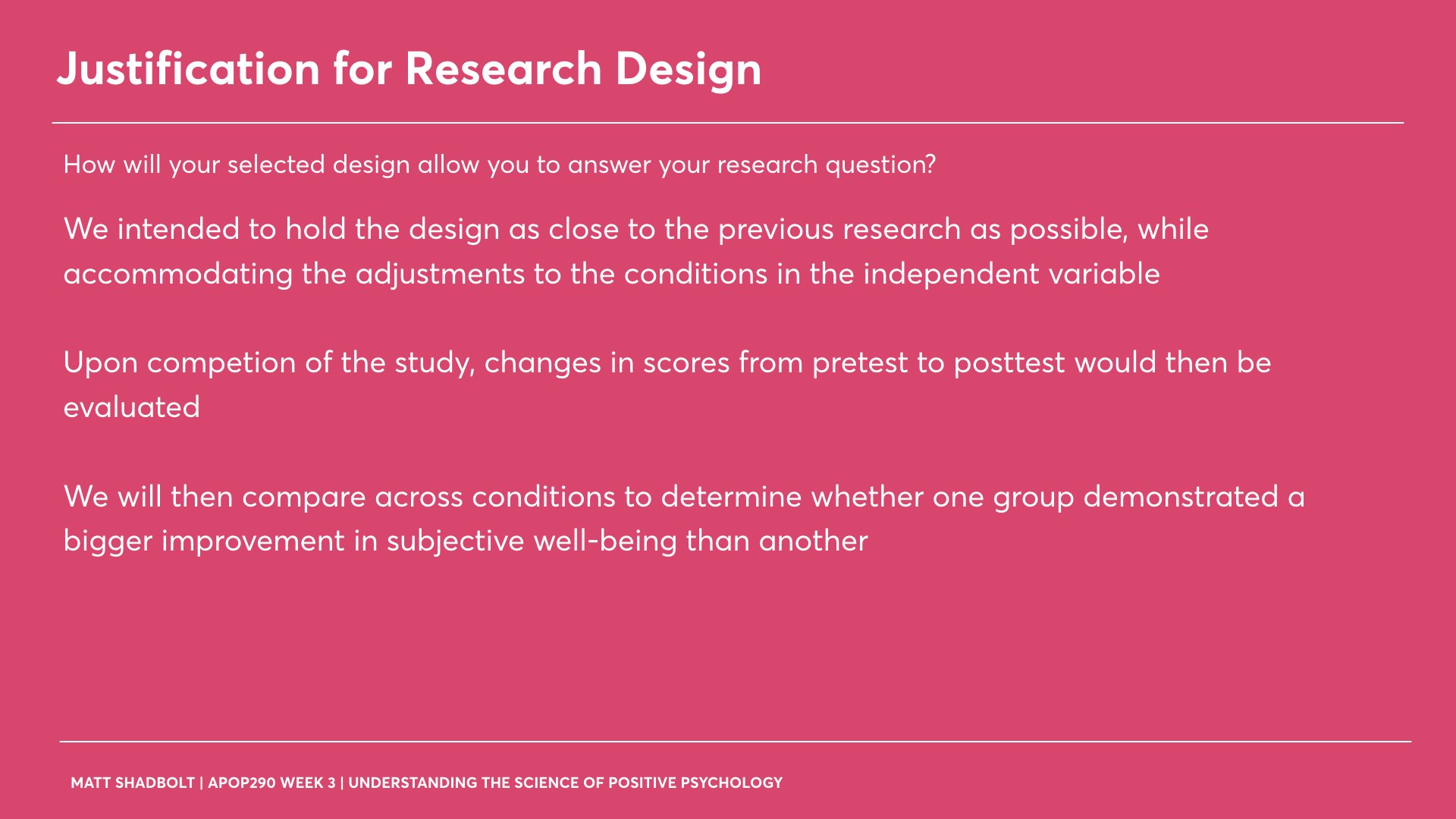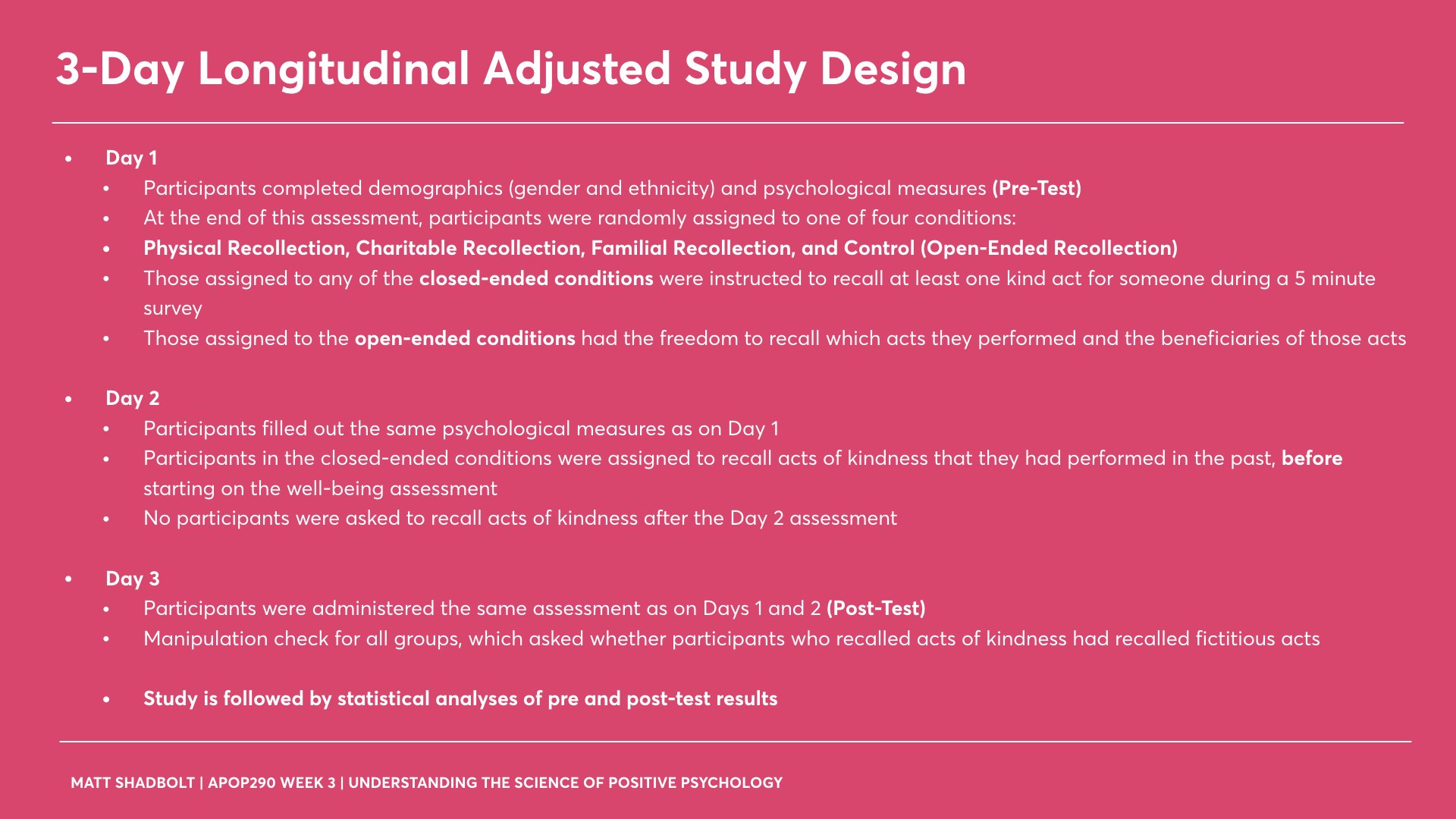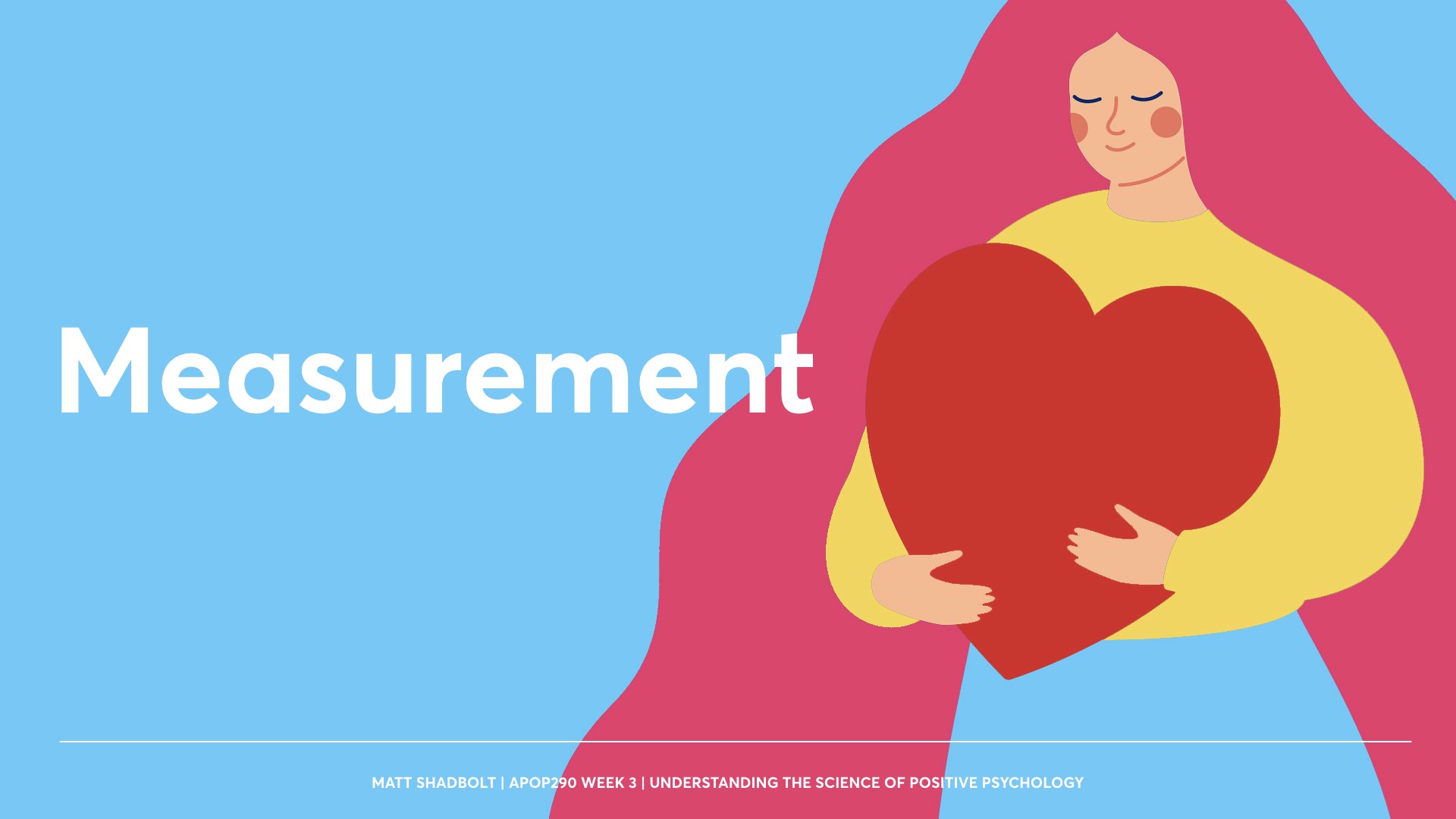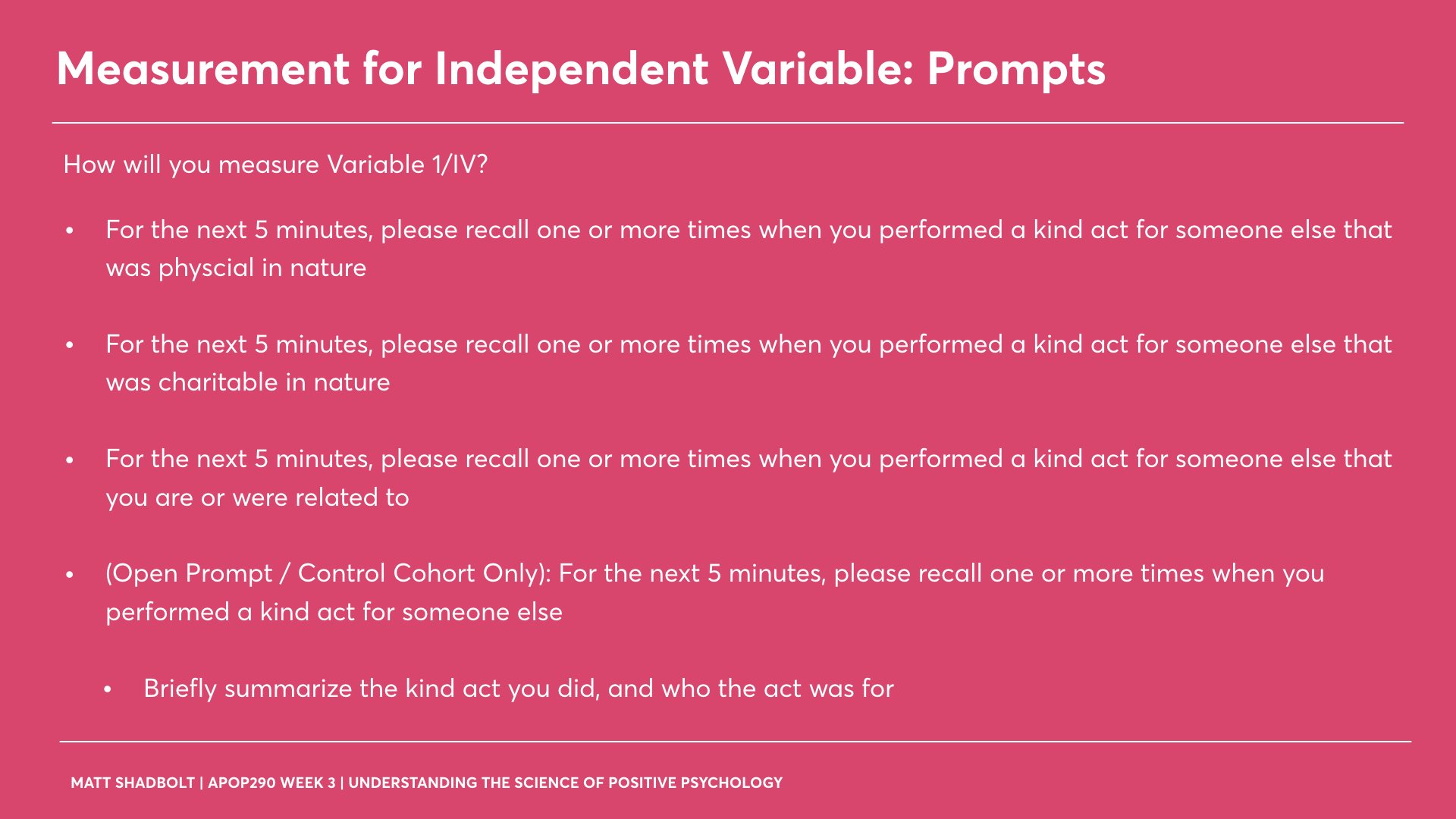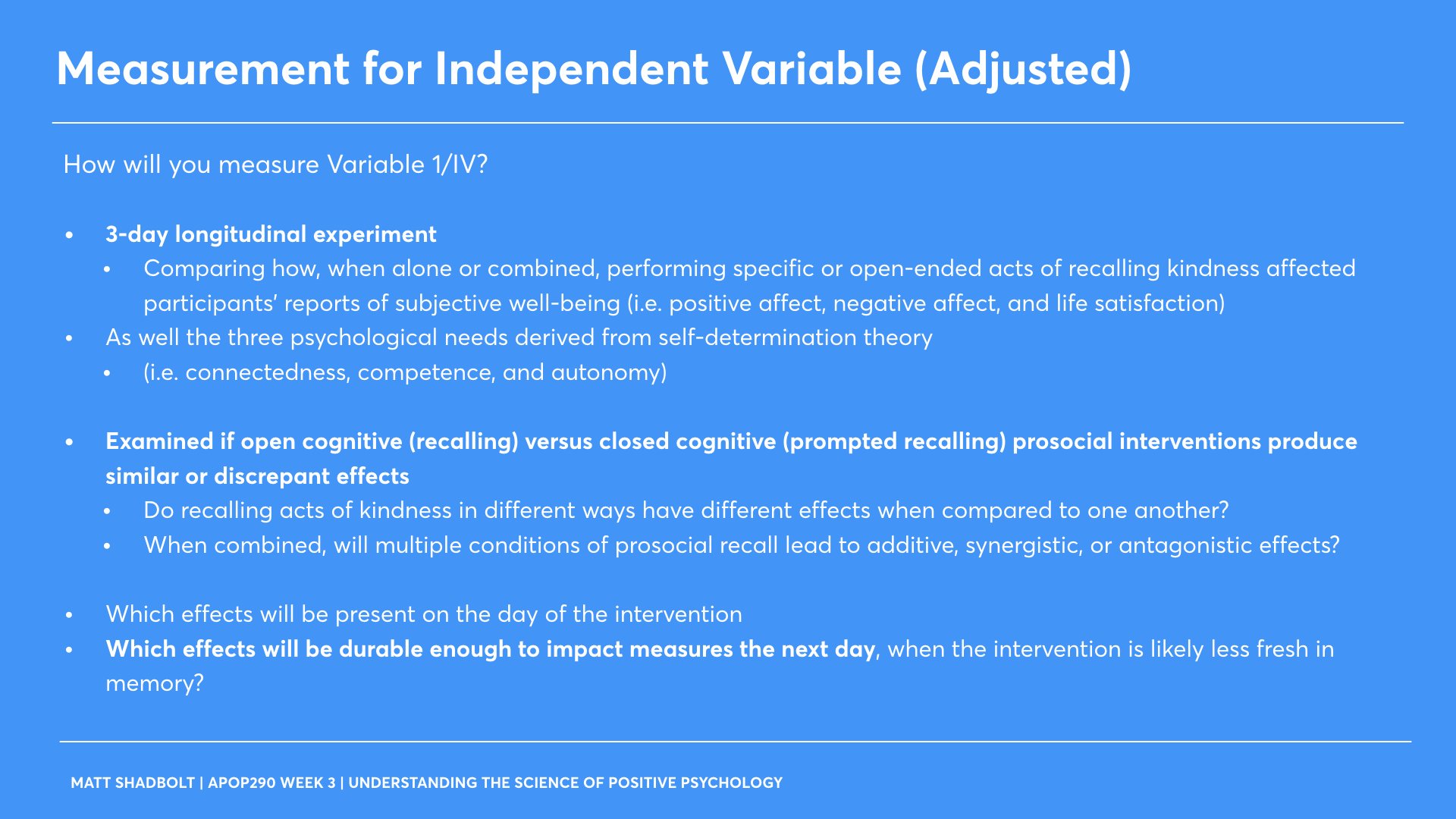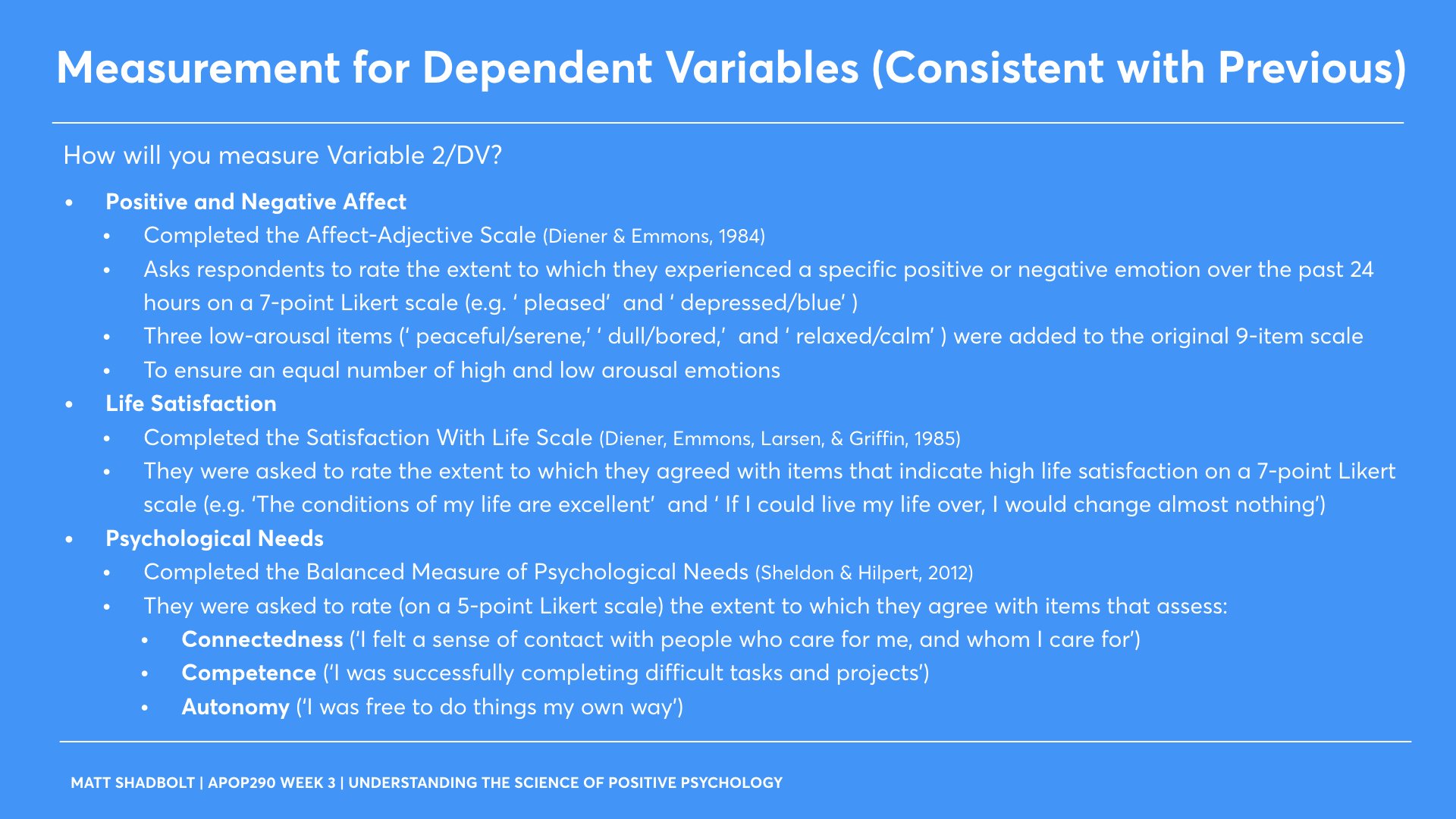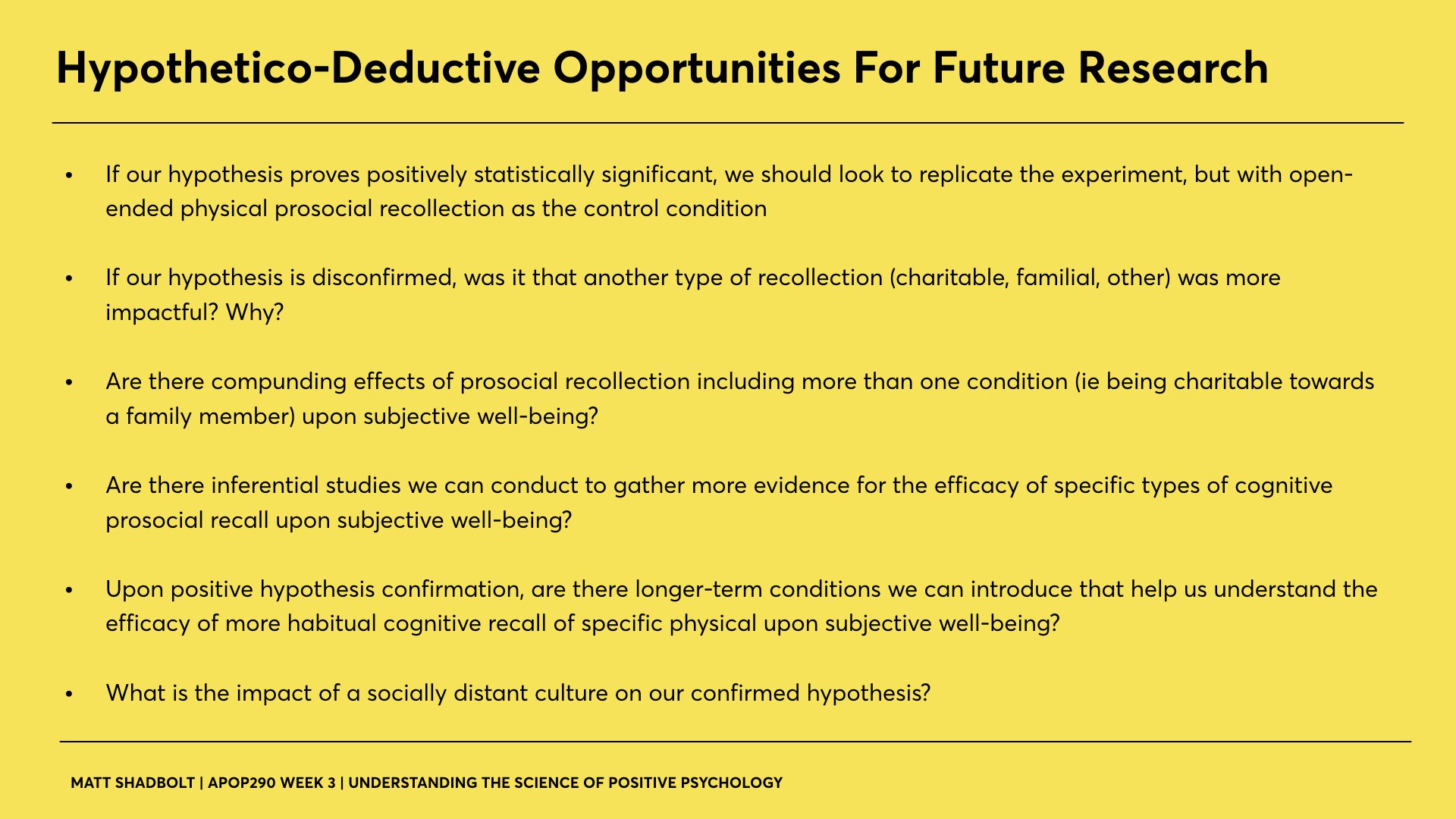Core Competency: Scientific Process & Problem Solving
Scientific Processes and Problem Solving: Familiarity with strategies used by scientists to develop, test, and revise hypotheses and theories; an ability to express appreciation for science as an intellectual enterprise involving both individual and collaborative work to support knowledge acquisition and change.
Context
Course Information: APOP290: Understanding the Science of Positive Psychology
Creation Date: September 15th, 2021
Description of Artifact:
This single factor multi-level experiment design investigates the impact of different cognitive prosocial behavior recall methods on subjective well-being. Building on prior positive psychology research demonstrating both performing and recalling prosocial behaviors enhance well-being, my study design specifically examines whether recalling physical, charitable, or familial acts produces varying effects. Using a single-factor, multi-level experimental design, participants would be assigned to one of four recall conditions: physical, charitable, familial, or open-ended (control), with subjective well-being measured through the dimensions of affect, life satisfaction, and psychological needs. My hypothesis proposes that recalling physical prosocial acts will yield the highest positive impact on well-being, and where results would provide insight into whether certain types of prosocial recollections are more effective, informing future well-being interventions in socially distant contexts.
Skills, Knowledge of Abilities Demonstrated
Specific Skills/Knowledge:
Experimental Design Expertise: My experiment design demonstrates an ability to develop single-factor, multi-level experimental designs, including defining independent and dependent variables, creating experimental conditions, and ensuring validity through control measures.
Critical Analysis of Prior Research: Shows a capability to assess, dissect, and build upon previous research findings to identify gaps and craft testable, novel hypotheses grounded in existing literature.
Measurement and Data Collection Skills: Illustrates an ability to design and implement pre-test/post-test surveys, including the use of validated scales to measure subjective well-being factors found in positive psychology such as affect, life satisfaction, and psychological needs.
Hypothesis Development and Falsifiability: Reflects an understanding of hypothesis construction which is both testable and falsifiable, ensuring crisp alignment with scientific principles and methodology.
Application of Psychological Theories: Demonstrates knowledge of psychological frameworks such as self-determination theory and positive psychology, and seeks to apply these theories to investigate prosocial behavior's effects on well-being in practical contexts.
Connection to the Core Competency
Relevance:
Hypothesis Development and Testing: My study design reflects the scientific process by formulating a clear, testable hypothesis based on prior research and designing an experiment to validate or refute it, aligning with scientific strategies for acquiring and refining knowledge.
Iterative Approach to Research: The design reflects the iterative, cumulative nature of scientific inquiry by building upon previous studies, identifying gaps, and proposing further methods of inquiry to address unanswered questions, highlighting the process of curiosity in ongoing revision of hypotheses in scientific work.
Experimental Design and Variable Manipulation: The design demonstrates problem-solving through seeking a careful manipulation of variables and control conditions to isolate cause-and-effect relationships, striving to produce results which might contribute meaningful insights to the field of psychology.
Use of Empirical Evidence: By employing pre-test/post-test measures and validated psychological scales, my design demonstrates a reliance upon empirical evidence from which to draw conclusions, a core aspect of scientific problem-solving and theory testing.
Collaboration and Knowledge Advancement: The study design reflects an understanding of science as a highly collaborative and cumulative process, building upon previous findings to advance knowledge in ways which can be replicated and further explored by other researchers.
Challenges and Solutions
Challenge: Identifying Gaps in Prior Research
Solution: Conducted a broad review of existing studies seeking to pinpoint explicit gaps, such as the lack of detailed recall conditions in previous prosocial behavior experiments, which then informed the development of more specific experimental conditions.
Challenge: Designing a Testable and Falsifiable Hypothesis
Solution: Ensured my hypothesis was clearly defined, measurable, and aligned with principles of falsifiability by outlining conditions which could disprove the hypothesis if results did not align with expectations.
Challenge: Balancing Novelty with Continuity
Solution: Maintained consistency with prior research methods seeking to ensure comparability while introducing novel closed-ended recall conditions to provide clearly communicable, actionable insights on specific types of prosocial recollections.
Challenge: Ensuring Validity and Reliability of Measures
Solution: Selected well-established psychological scales (e.g., Affect-Adjective Scale, Satisfaction With Life Scale) to consistently support the reliability of the dependent variable measurements across all conditions.
Challenge: Managing Participant Variables and Environmental Factors
Solution: Sought to address potential extraneous variables by replicating participant demographics from prior research and ensuring consistent experimental conditions seeking to reduce bias and enhance the study’s internal validity.
Impact on Professional and Academic Growth
Professional Growth:
This design was produced during the depths of the COVID pandemic, and on reflection is an artifact highly reflective of its time, where scientific method was very much in the public discourse. Crafting this design enhanced my ability to produce research rooted in scientific principles, improving my skills in hypothesis development, experimental design, and critical analysis, but also giving me a deeper appreciation for method itself. It deepened my understanding of the scientific process, particularly the importance of iteratively building upon existing knowledge to create novel contributions. Through seeking to address challenges, I learned how to balance innovation with continuity in research and ensure validity in data collection methods, something I have been able to apply to my work in the NBC newsroom. This experience strengthened my problem-solving and analytical thinking, skills crucial for evidence-based decision-making in my field of digital journalism. Overall, it reinforced my appreciation for scientific inquiry as a collaborative and iterative process for advancing knowledge.
Academic Growth:
Working on this study design significantly contributed to my academic growth by deepening my understanding of research methodology and the scientific process. And for as challenging as it was, it was a project which confirmed ‘I can do this’. It strengthened my ability to critically analyze existing literature, identify research gaps, and formulate testable hypotheses, traits which continue to show up in my classics and political science work. The process of designing an experiment with clear independent and dependent variables enhanced my skills in structuring research studies and interpreting empirical evidence. Additionally, it reinforced the importance of evidence-based reasoning and academic rigor in advancing knowledge, especially as we live in an increasingly post-truth world. This experience has exponentially improved my ability to approach academic problems methodically, fostering a stronger foundation for future scholarly work.
Self-Evaluation
Rubric Score You Think You Earned For This Submission: 20
Produced during a global pandemic, this study is highly reflective of the impact of positive psychology on me during that time as a method of academic and personal resilience. My work in positive psychology could not have been better timed and it still resonates deeply with me many years after I earned the advanced certification. The study design effectively reflects the core competency of Scientific Process & Problem Solving by demonstrating an understanding of hypothesis development, experimental design, and empirical data analysis, and aligns with key scientific strategies. It’s important to me to include an artifact from my positive psychology work, which was instrumental in developing a necessary grit and resilience which served me well during the rest of my academic work at Penn. It gave me the methods and techniques to weather challenges, but also to keep going in ways which might otherwise have caused me to give up. In short, I could not have done it without this.
Survey
This artifact helped me demonstrate growth within the competency of Scientific Process & Problem Solving by enhancing my ability to design and evaluate experiments rooted in empirical evidence and rigorous methodology. The process of formulating a testable hypothesis, structuring a multi-level experiment, and addressing potential challenges strengthened my understanding of research design and data validity. It deepened my appreciation for iterative scientific inquiry and evidence-based problem-solving, skills I continue to apply in both academic and professional contexts. This project also reinforced the value of resilience and adaptability in tackling complex challenges, underscoring the importance of grit in both the scientific process and personal growth.



